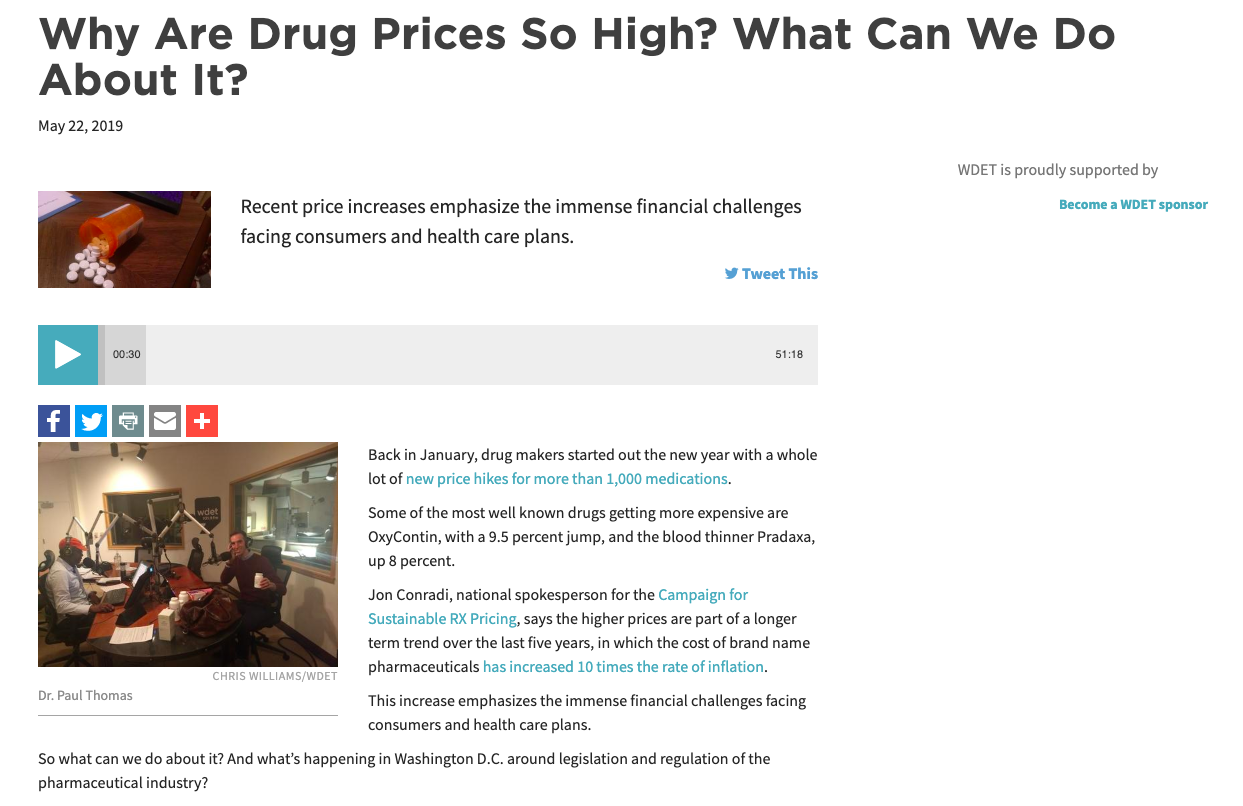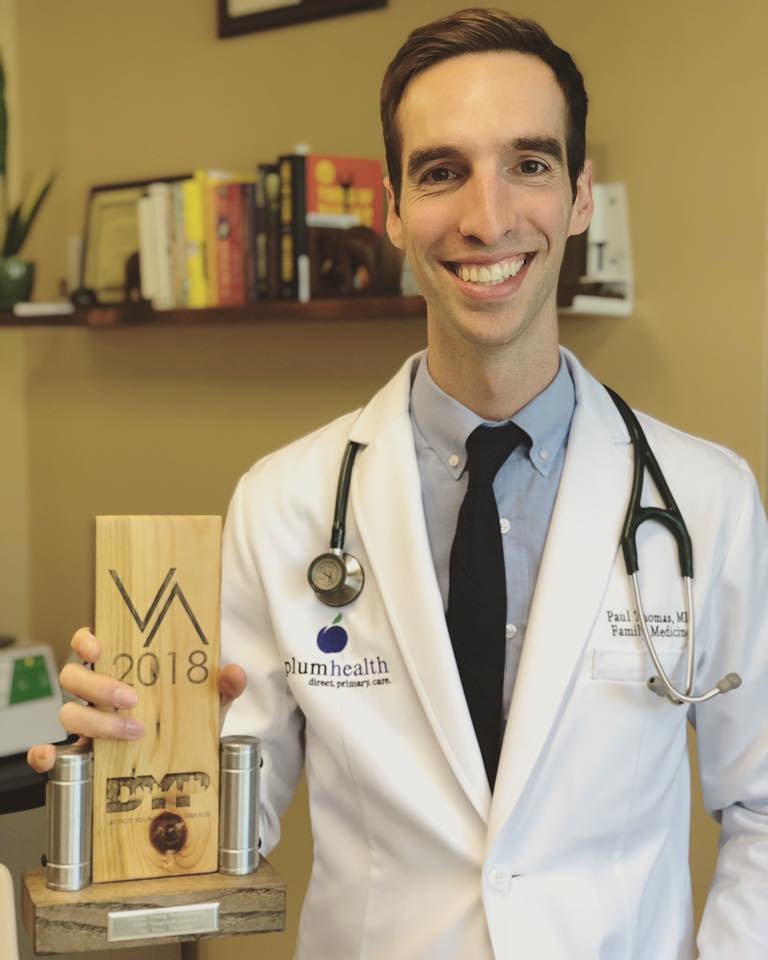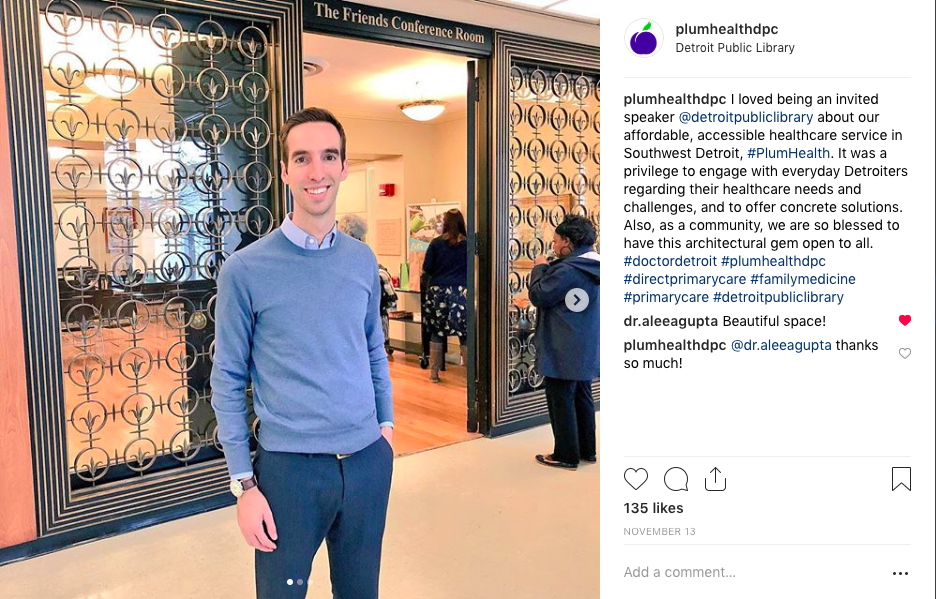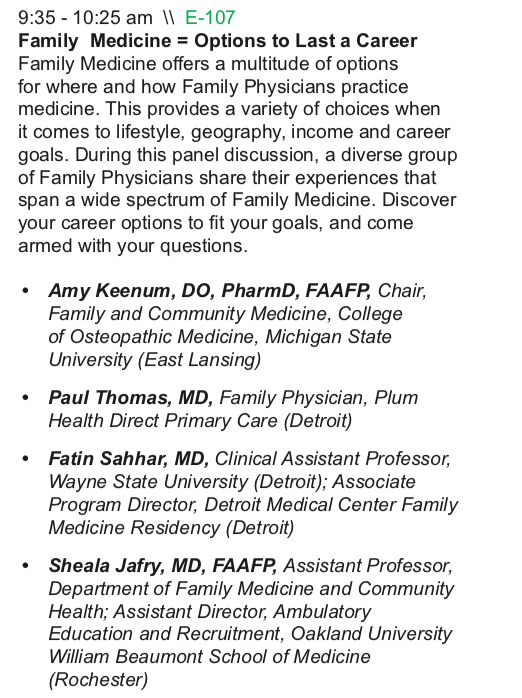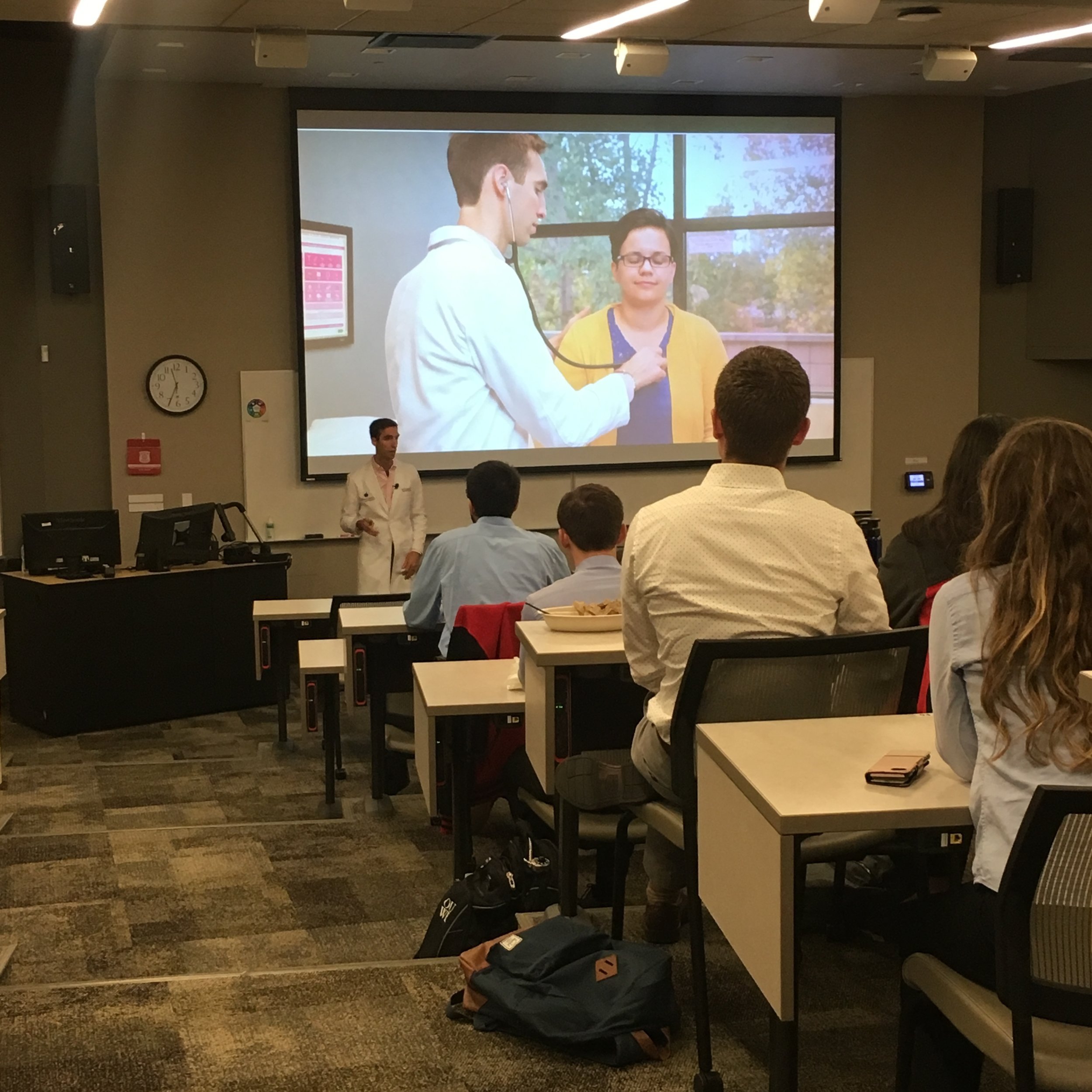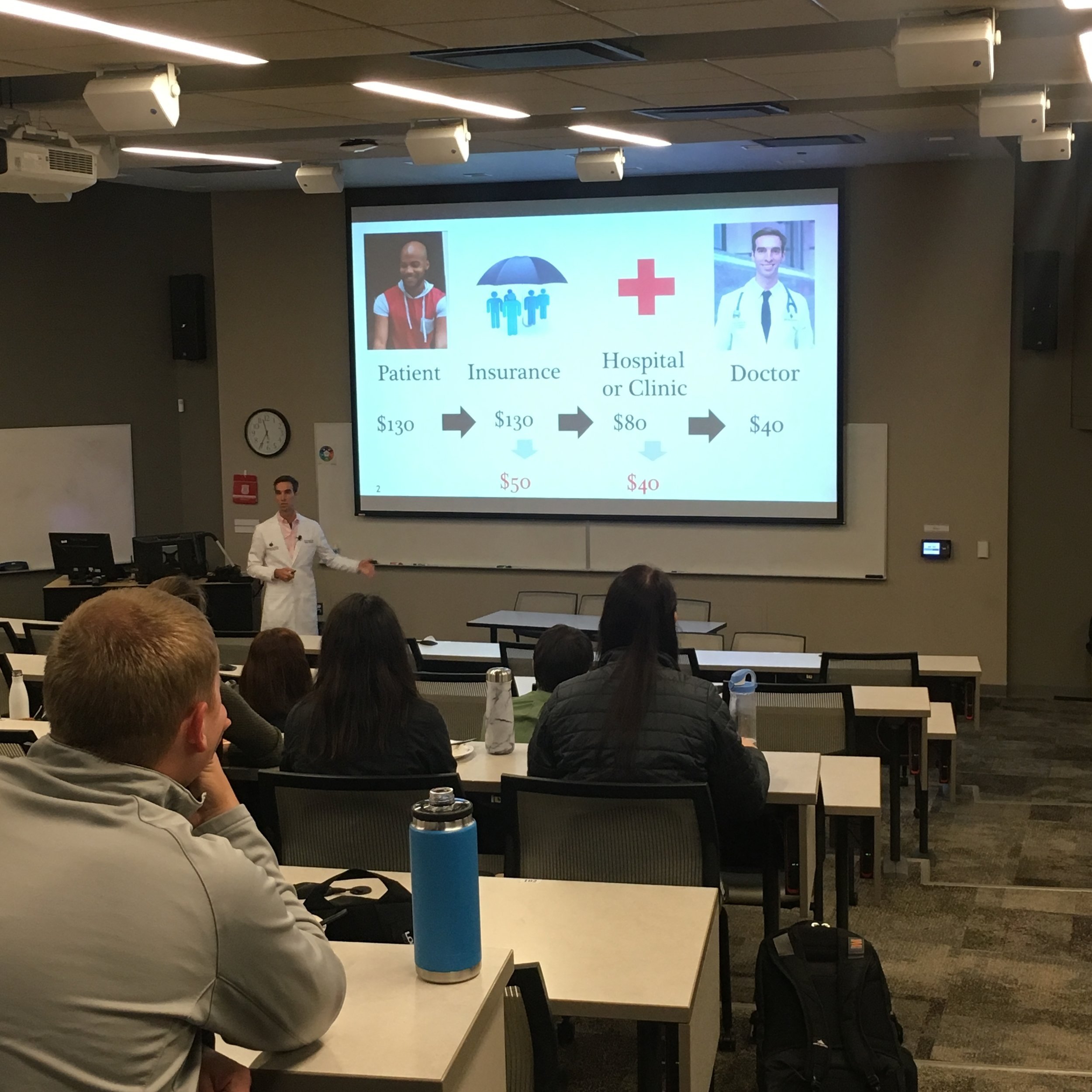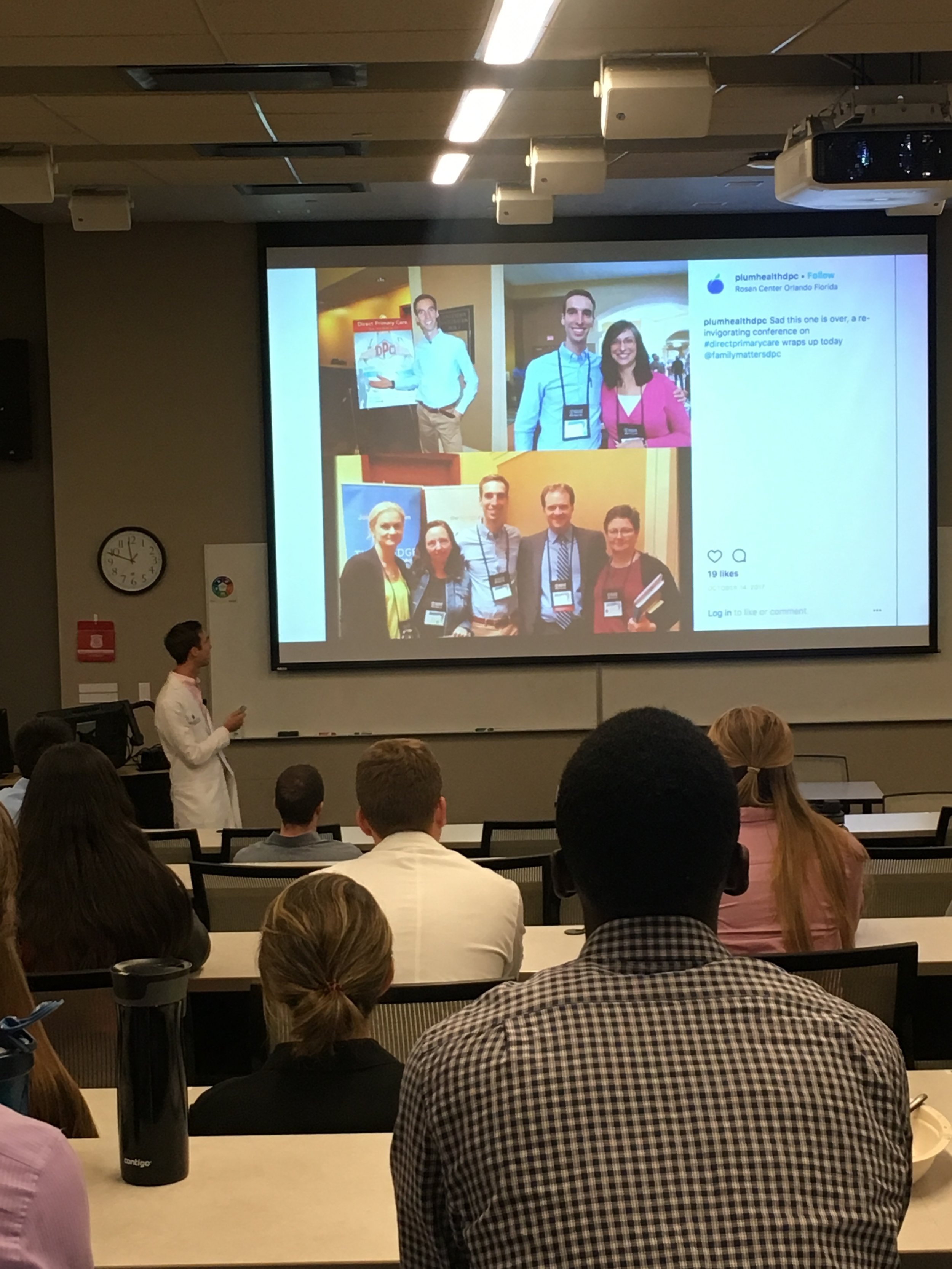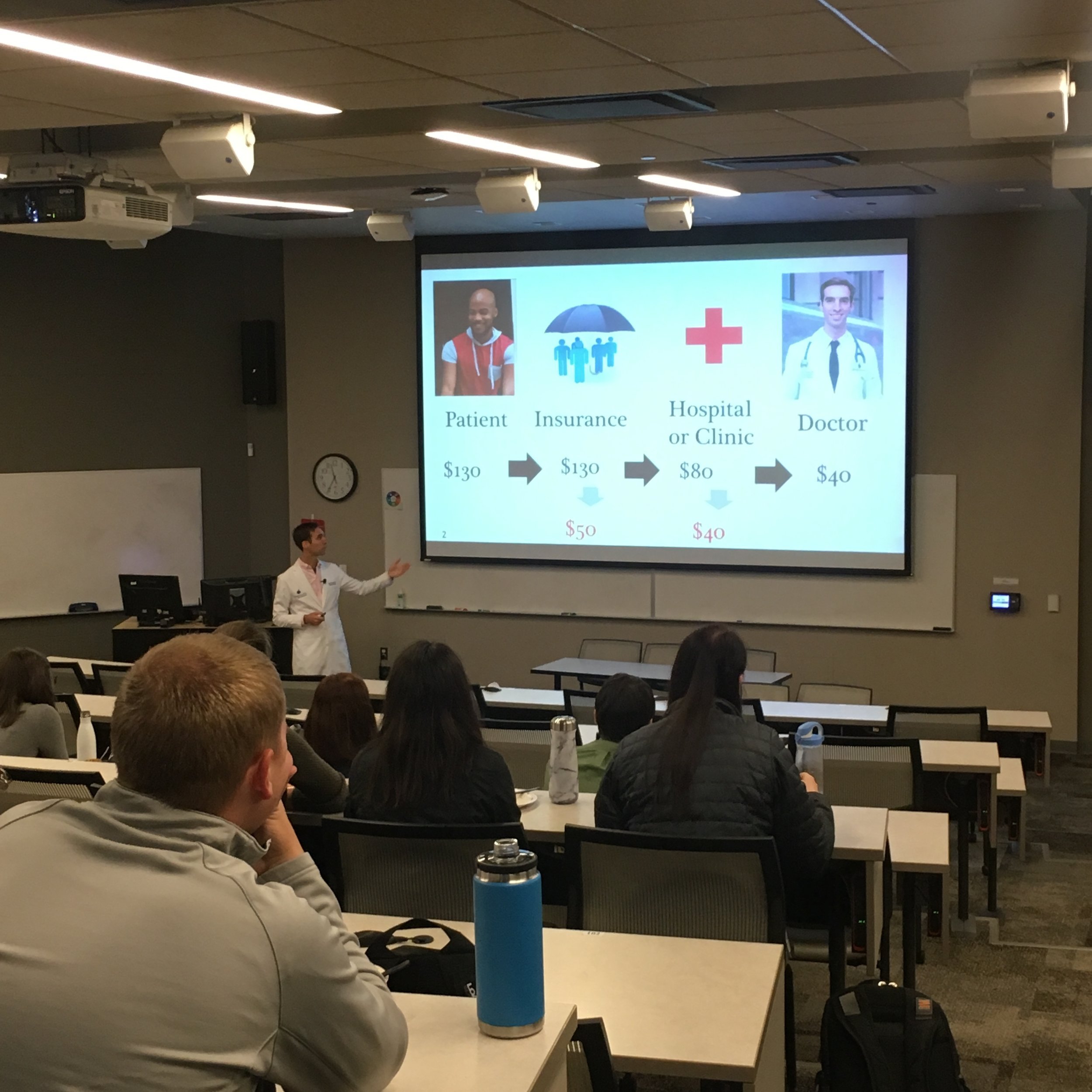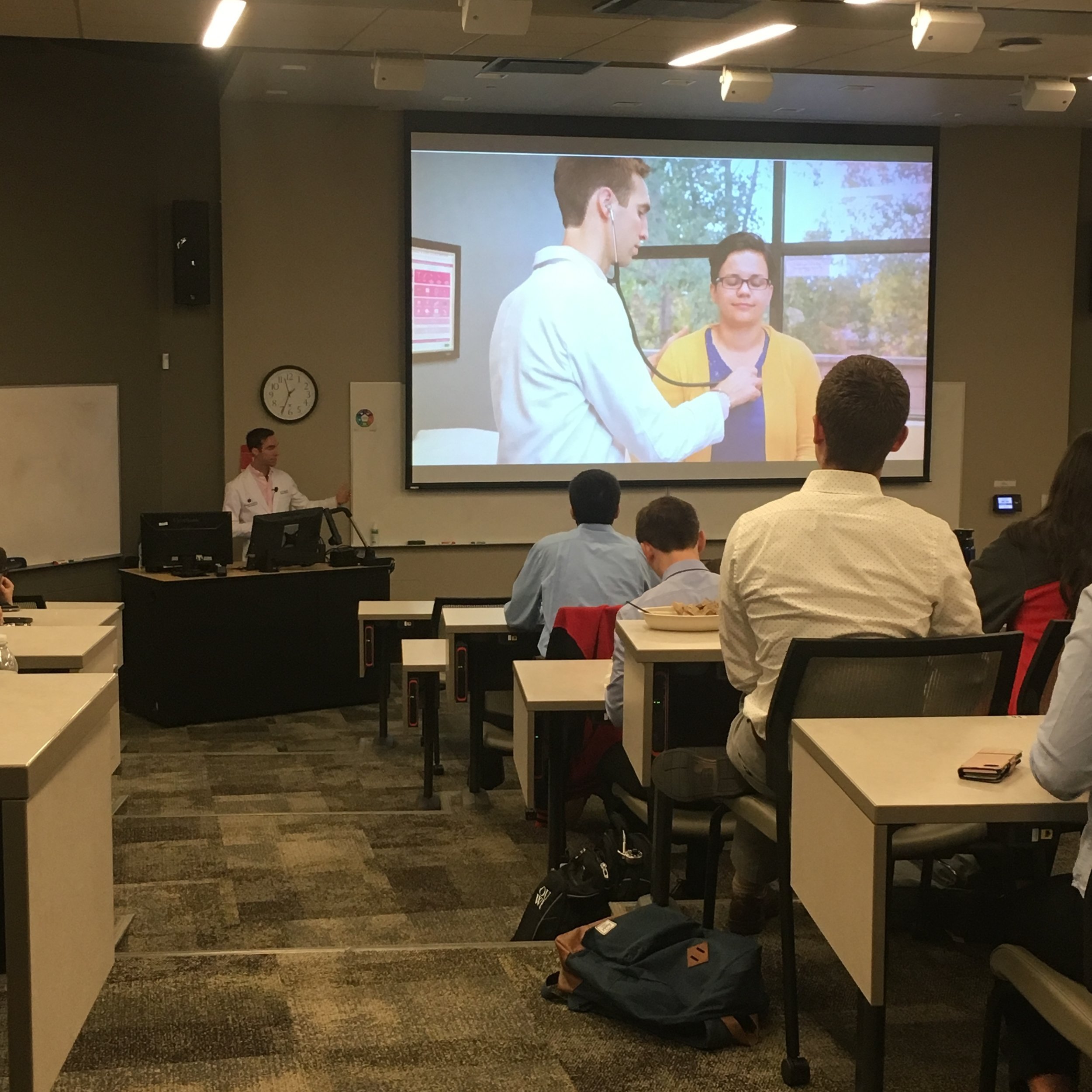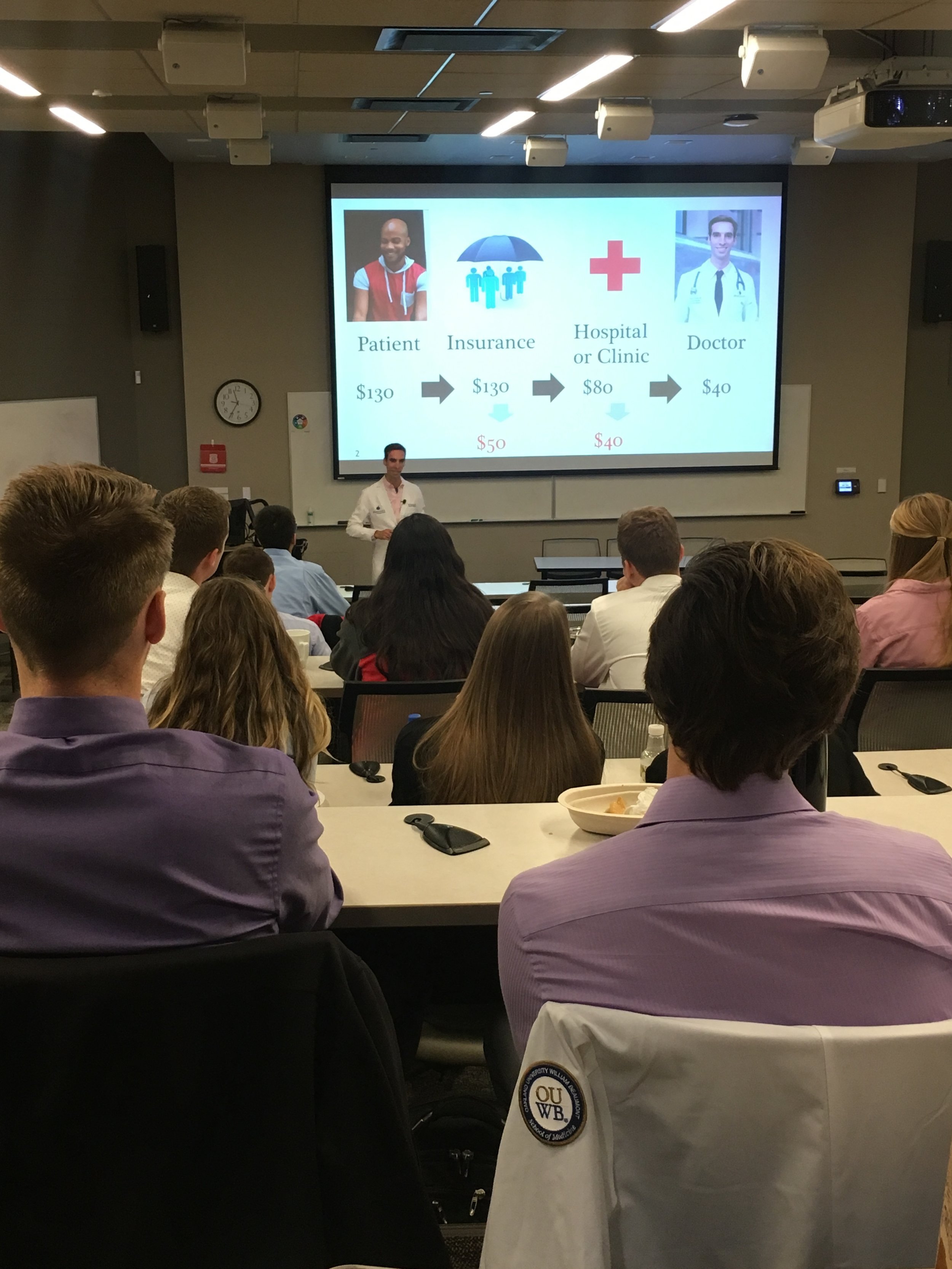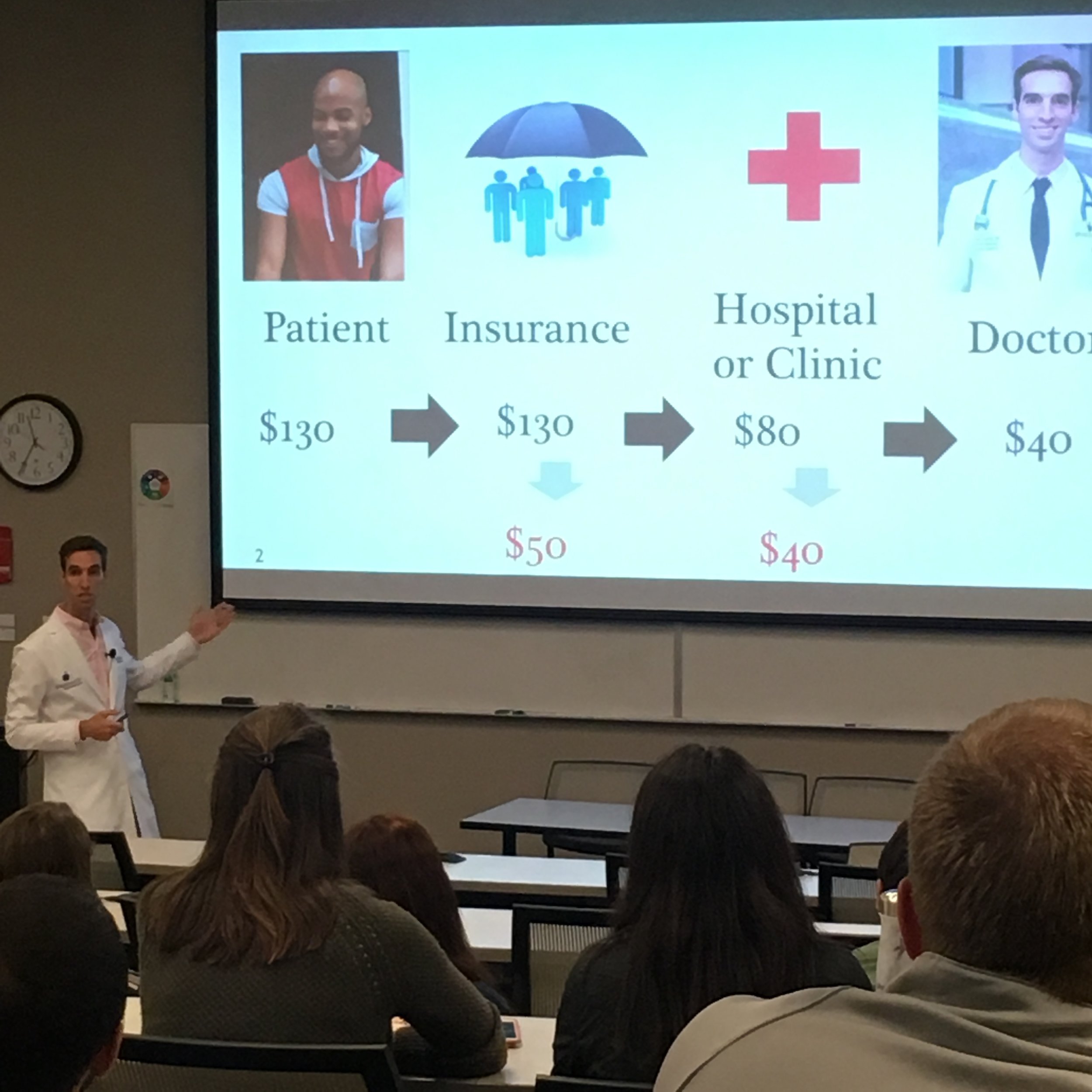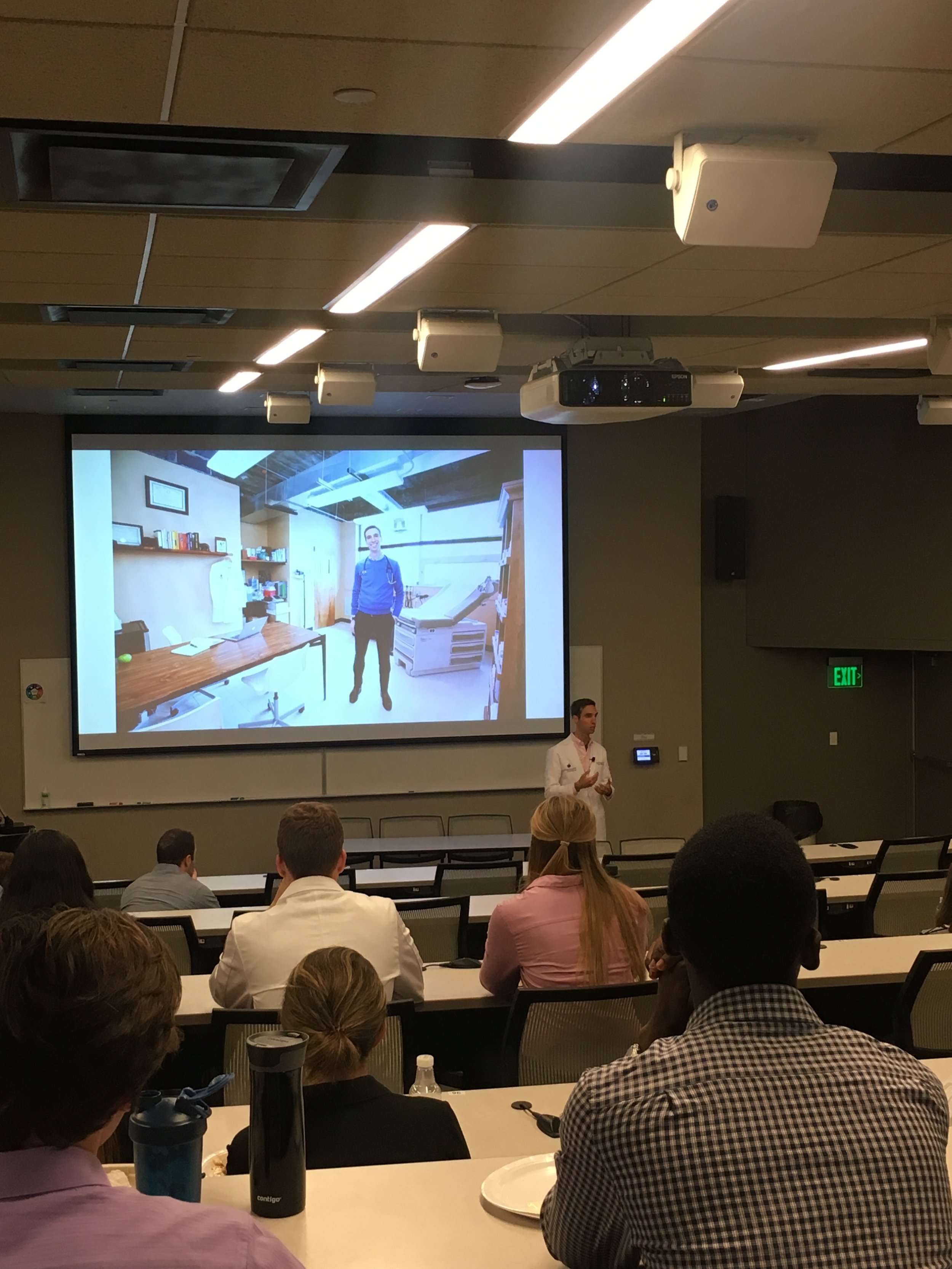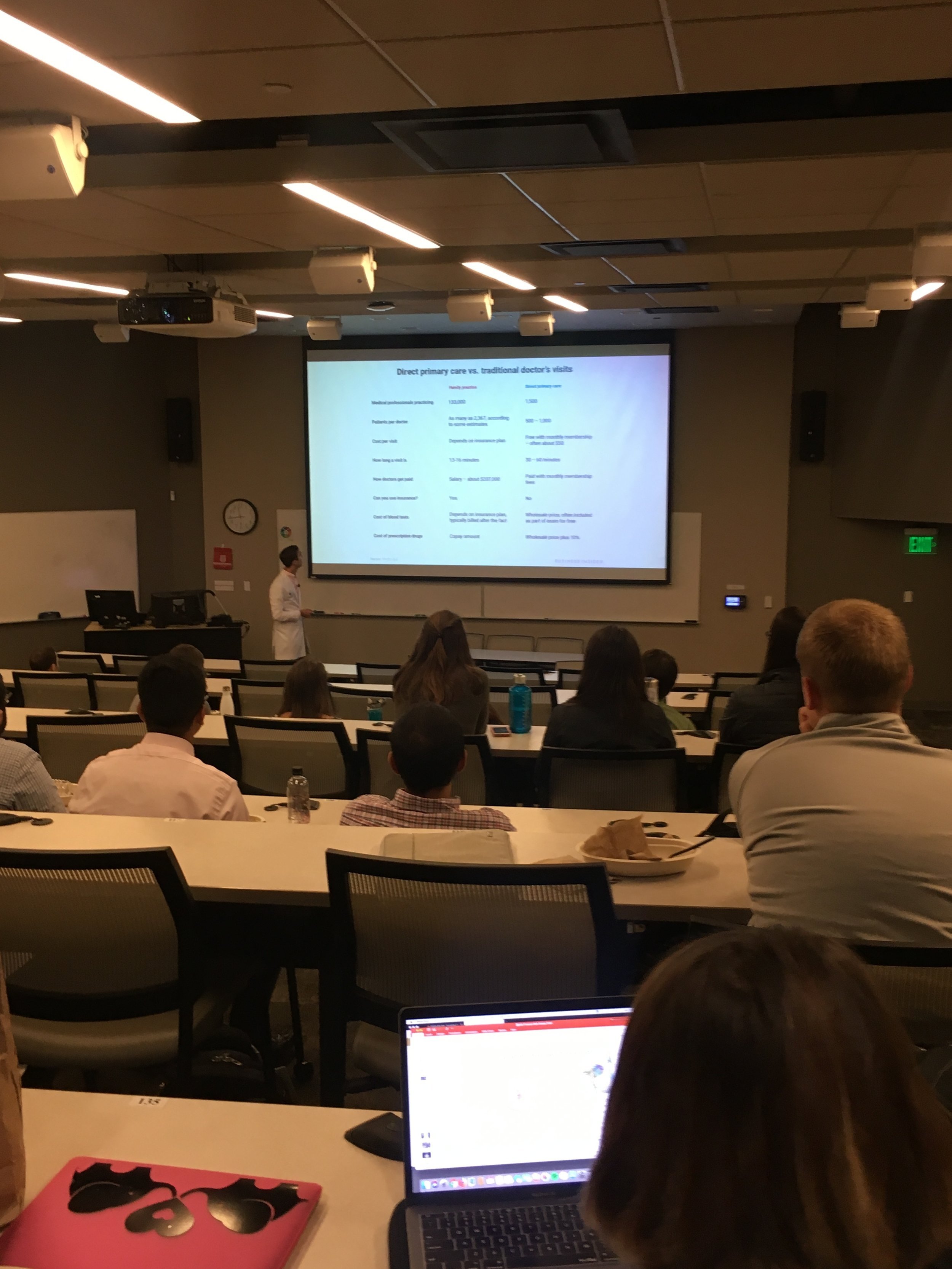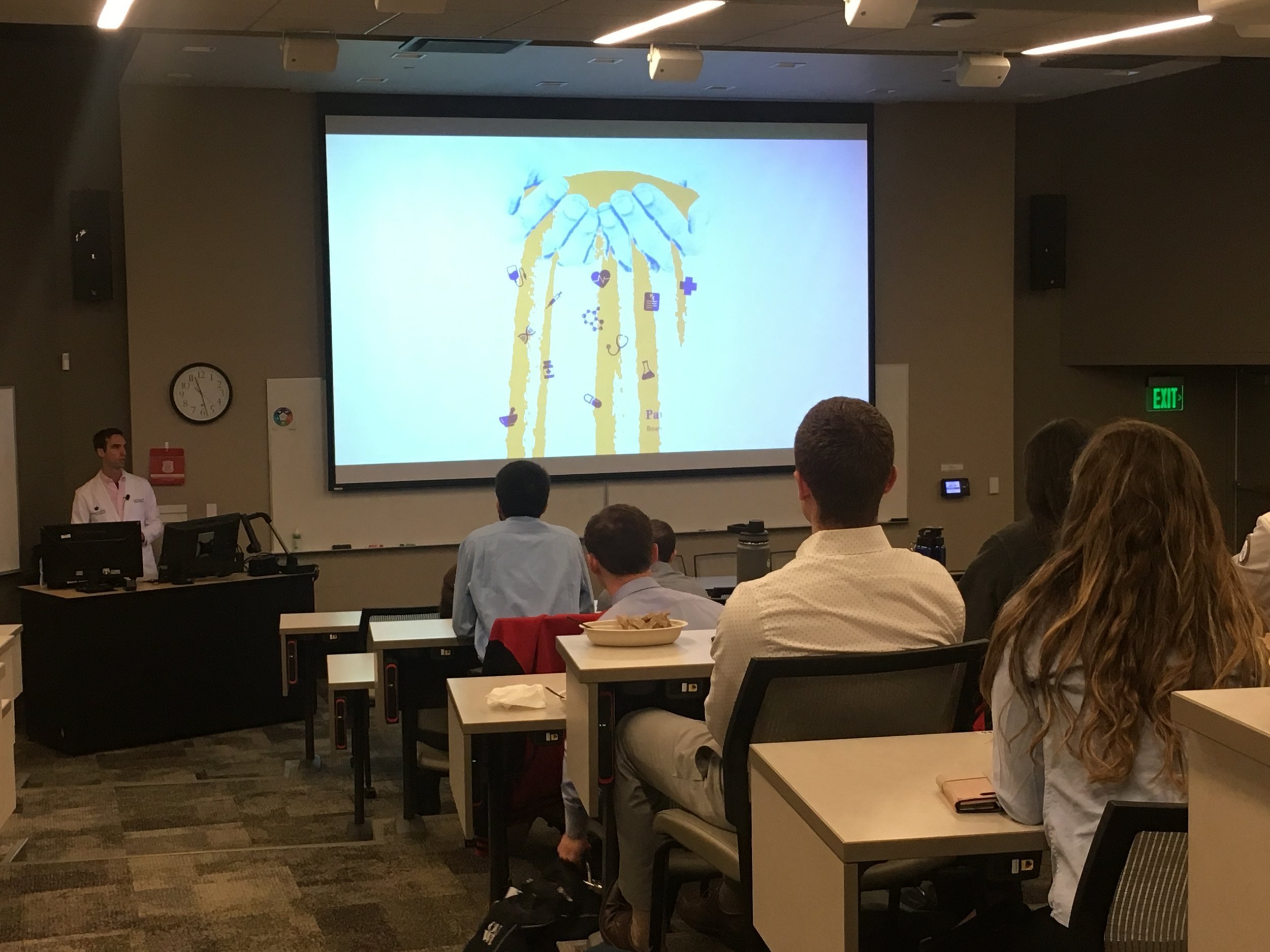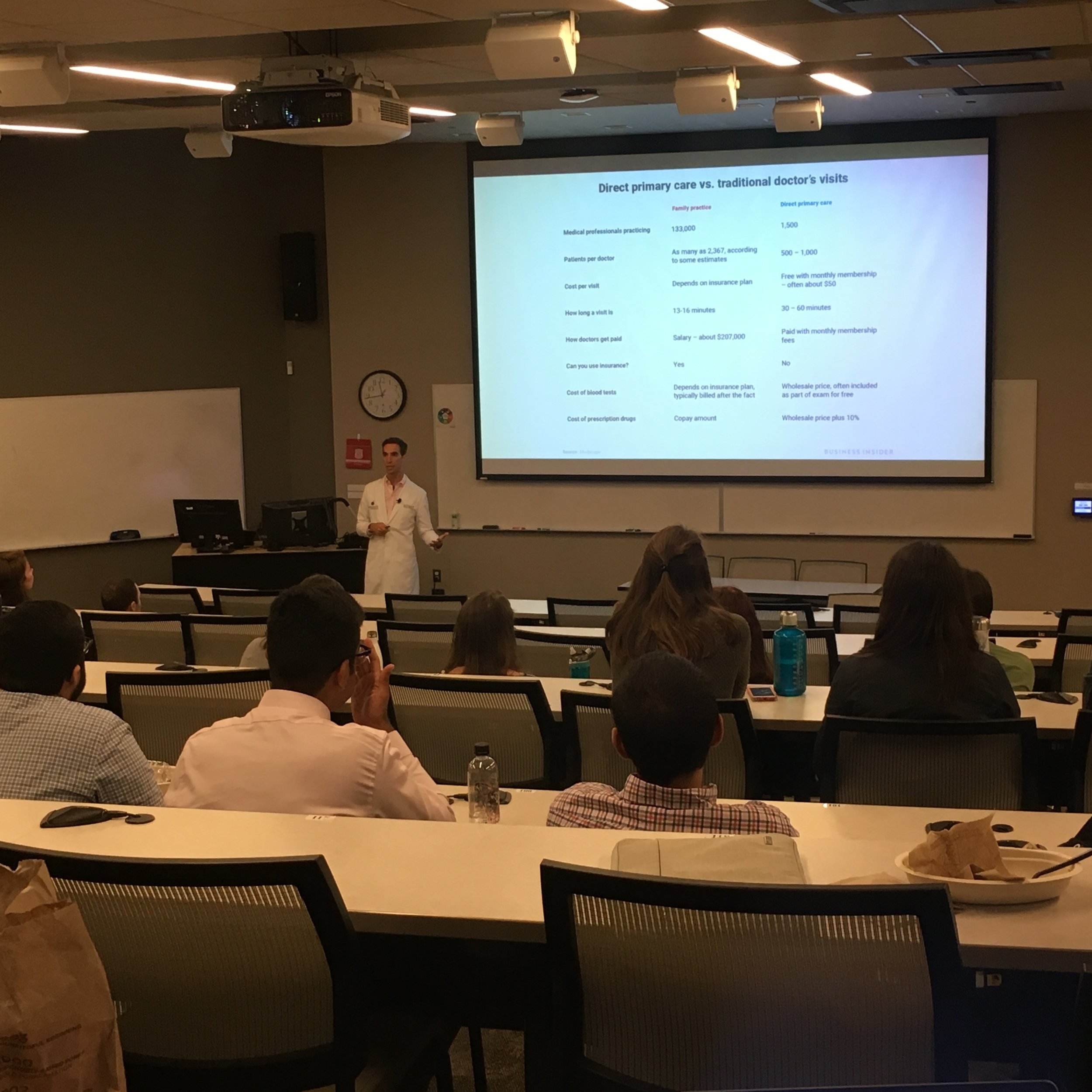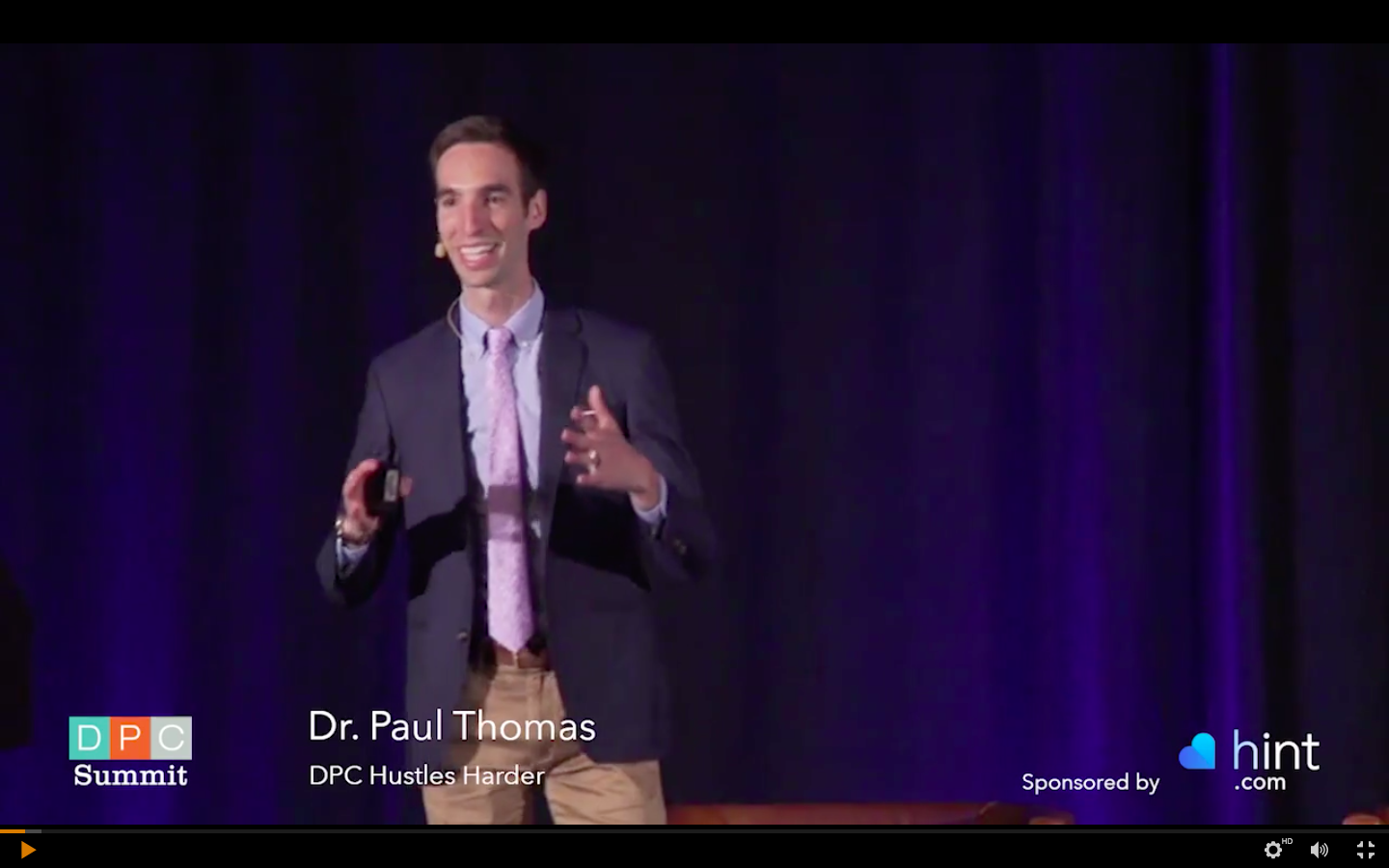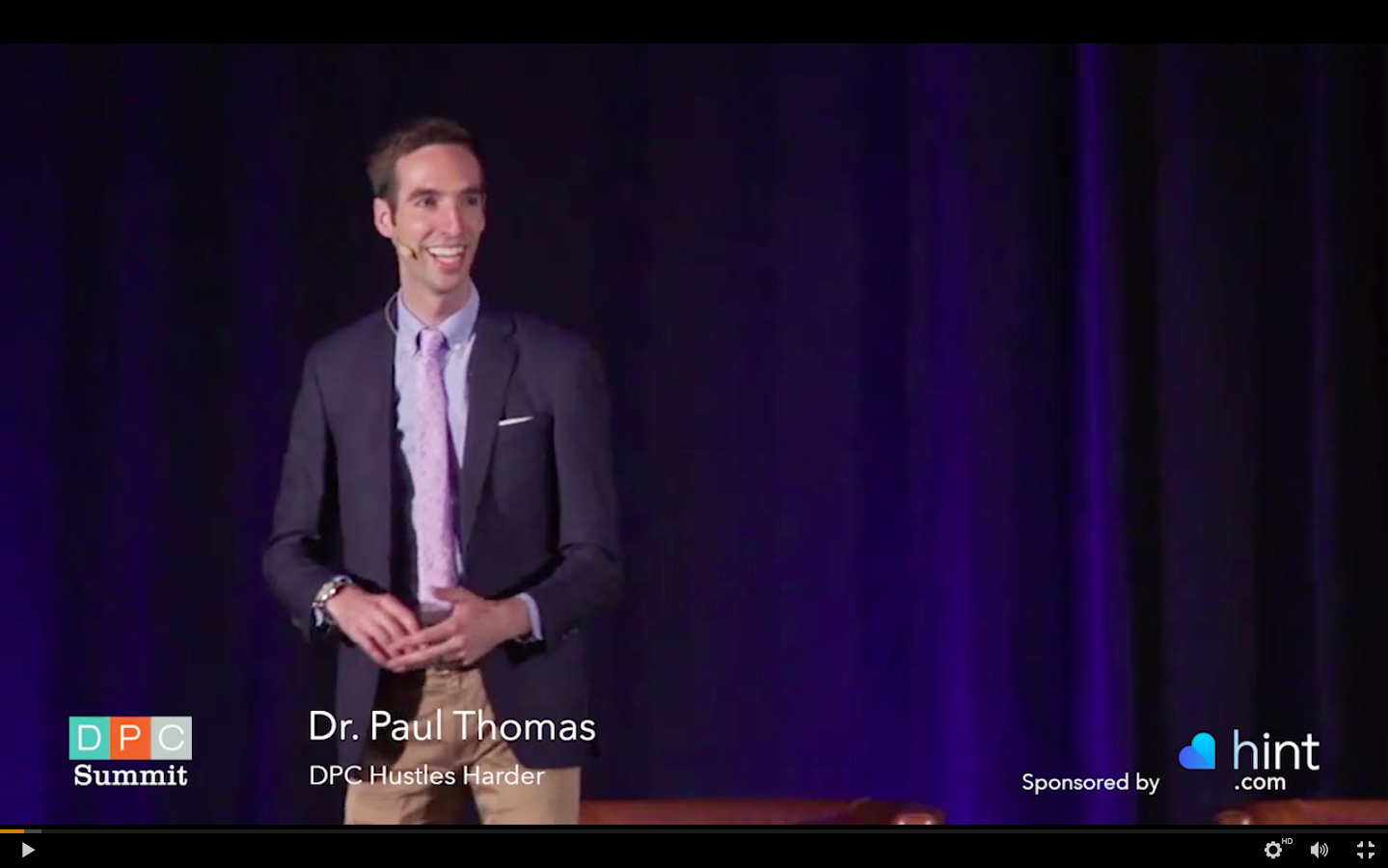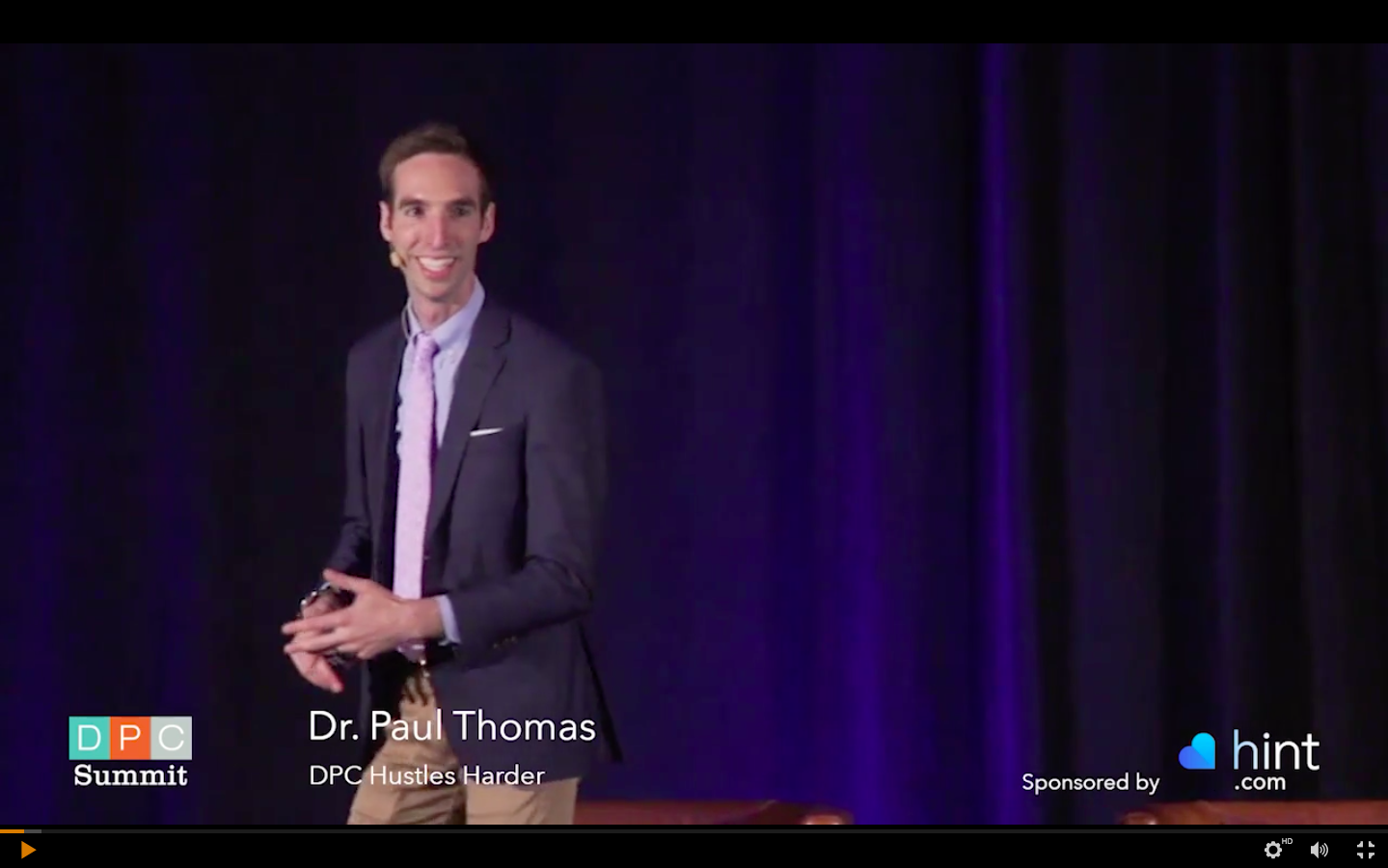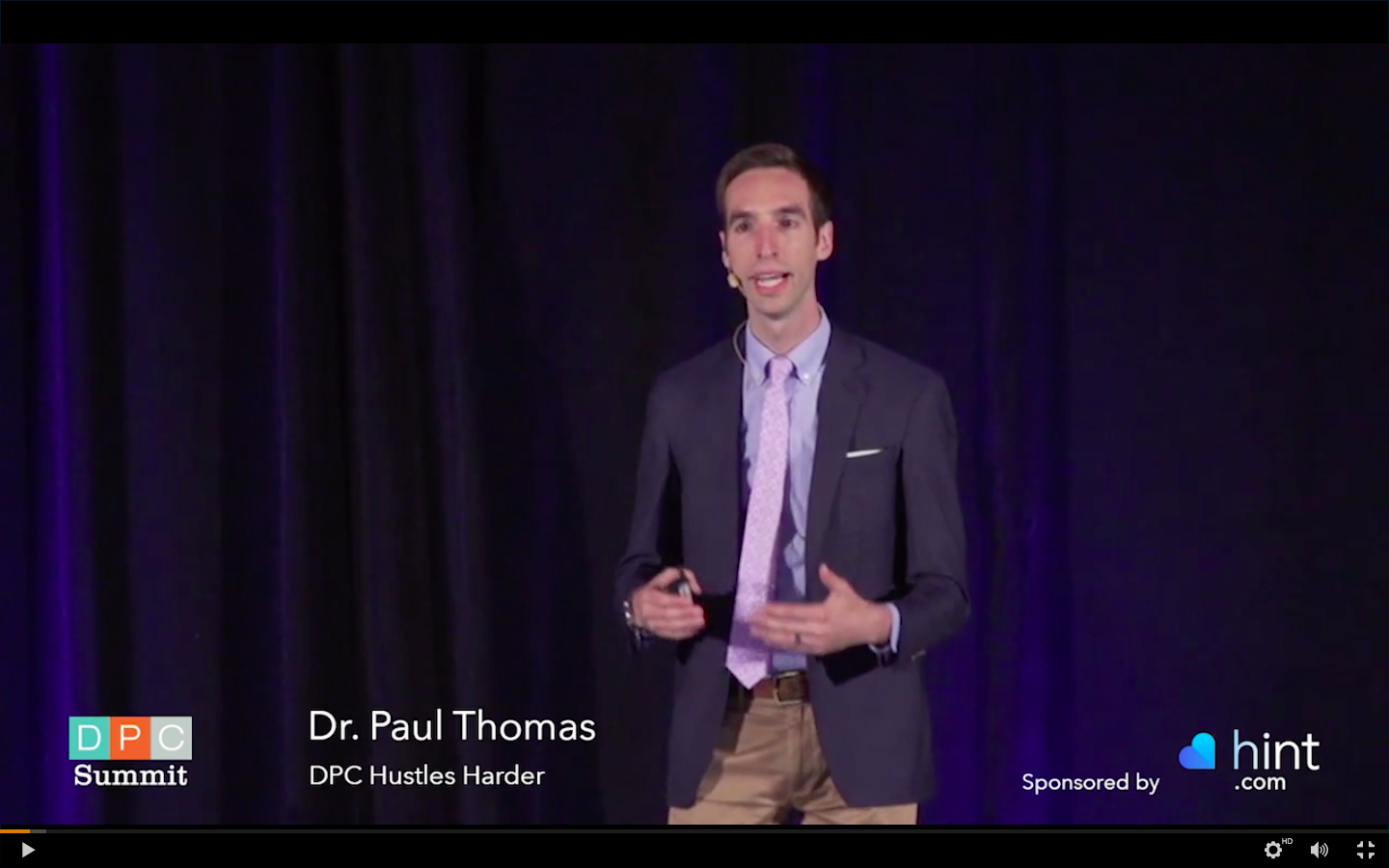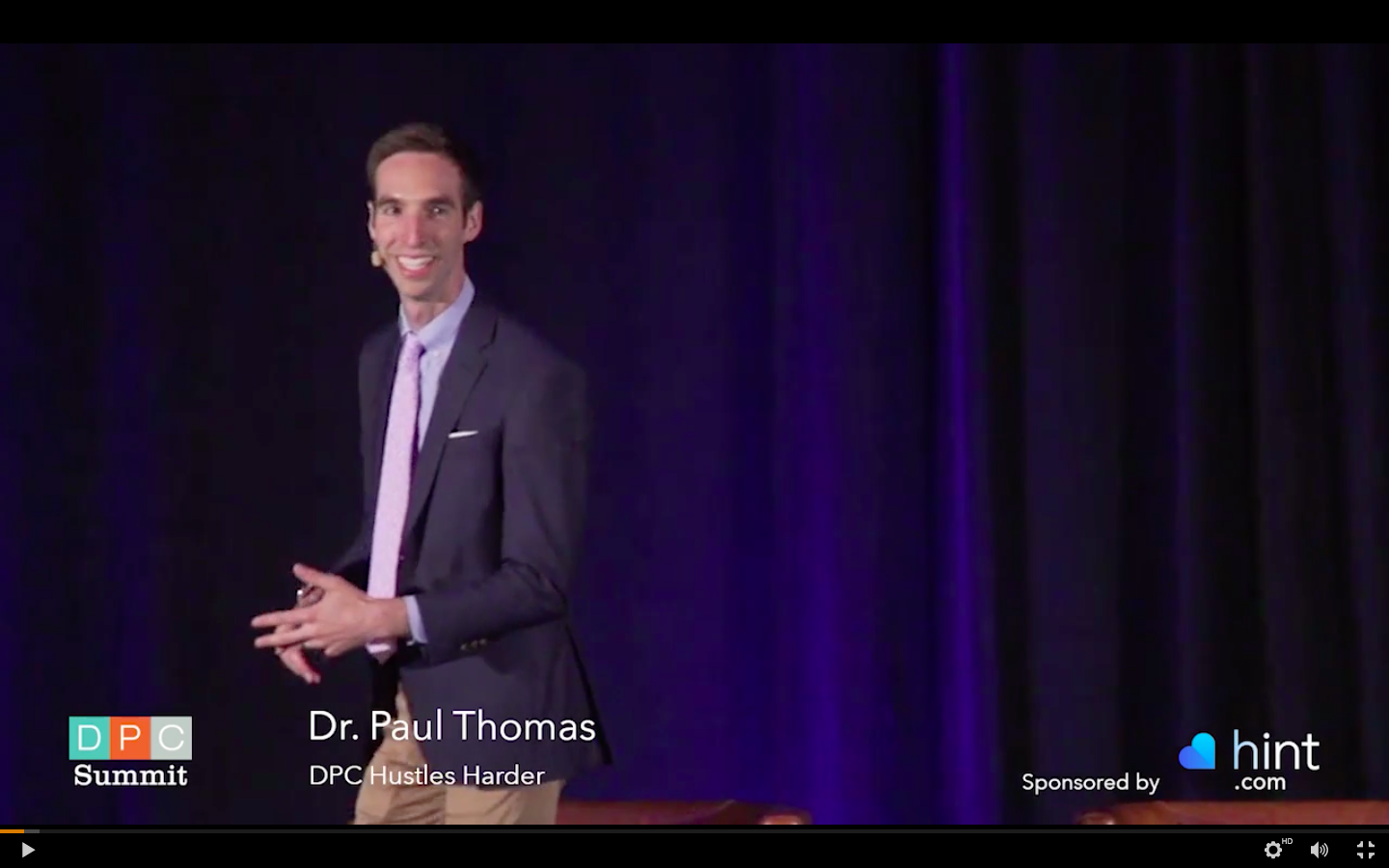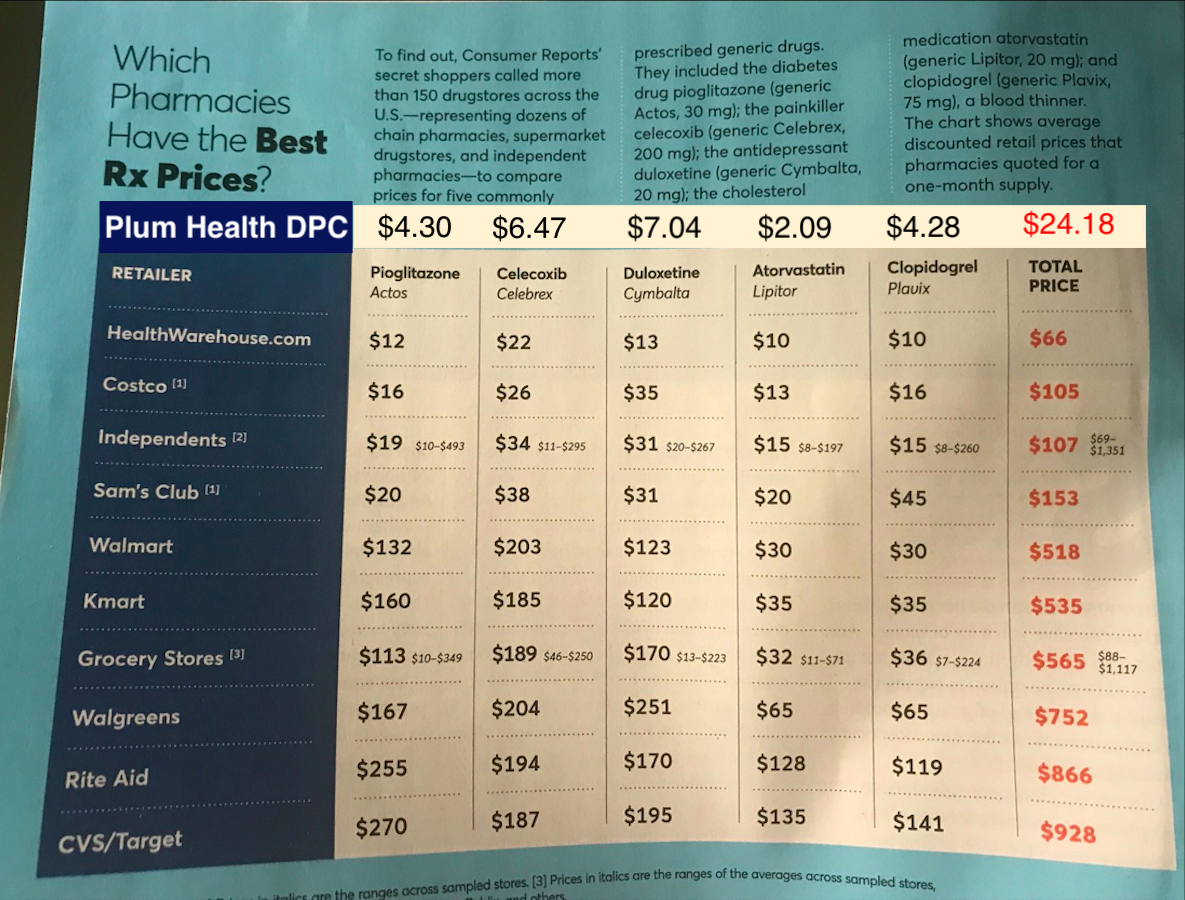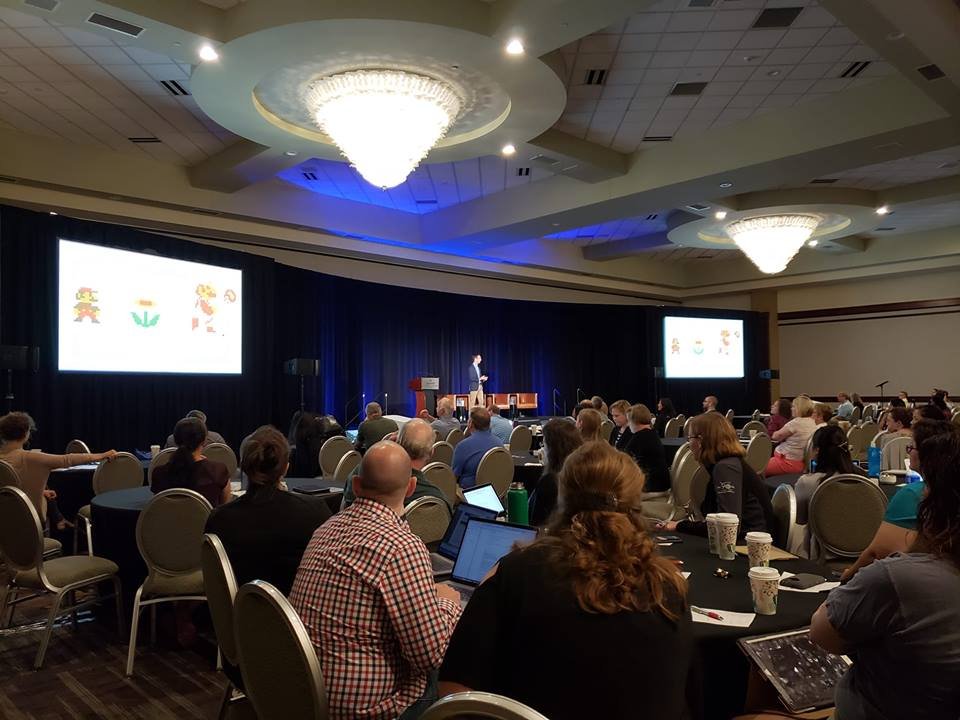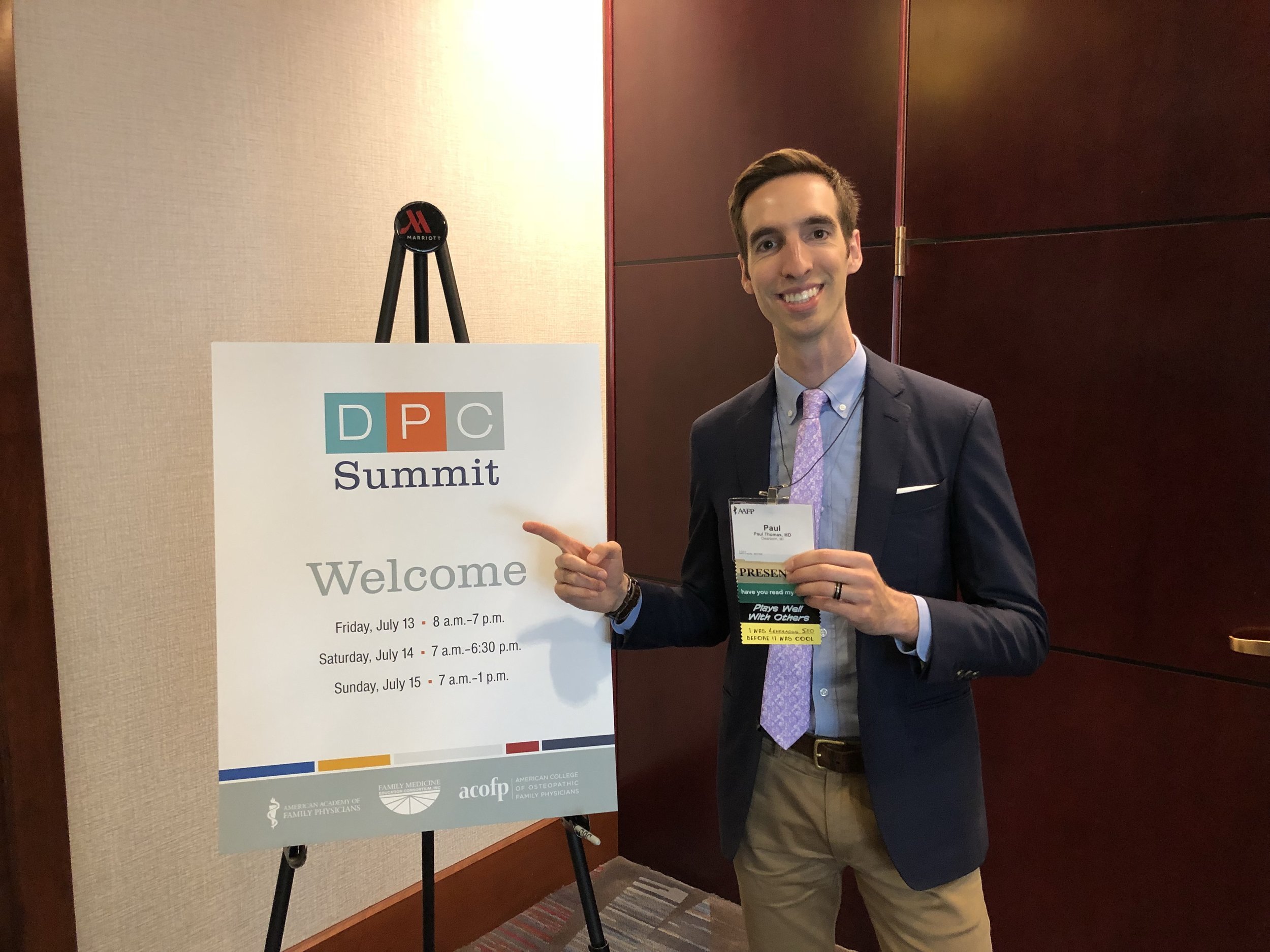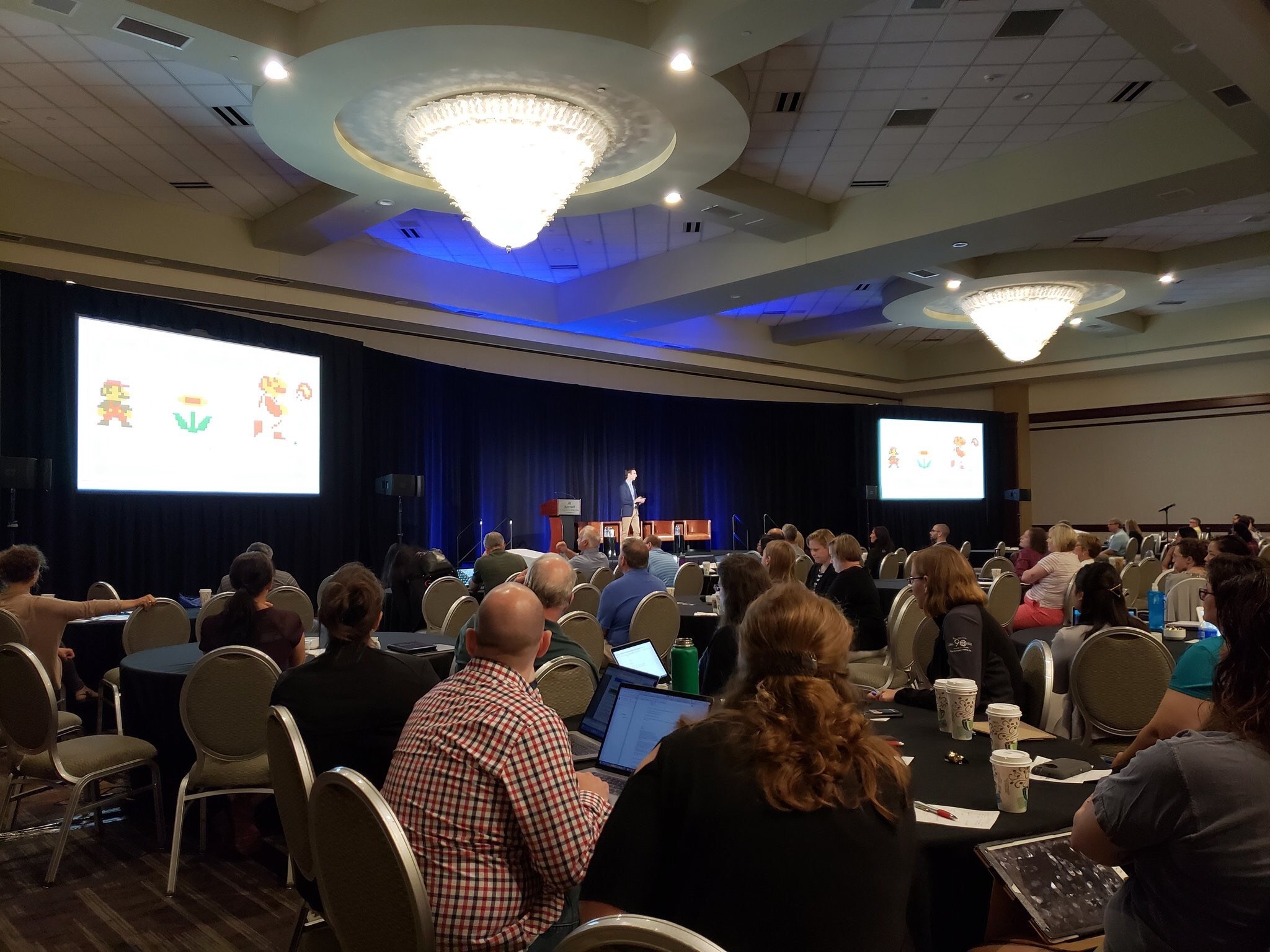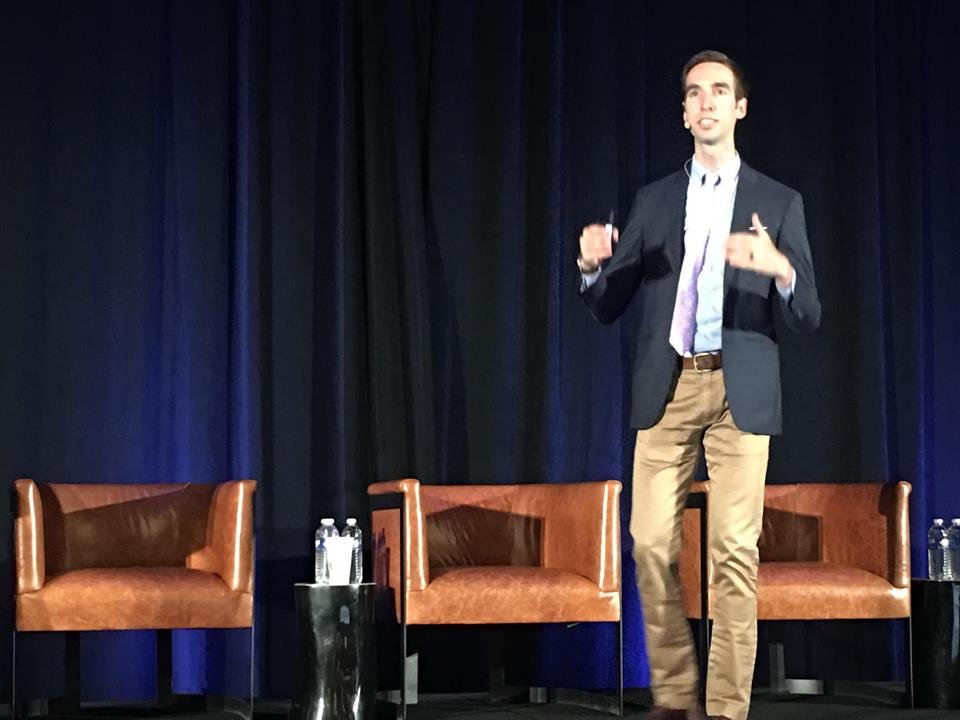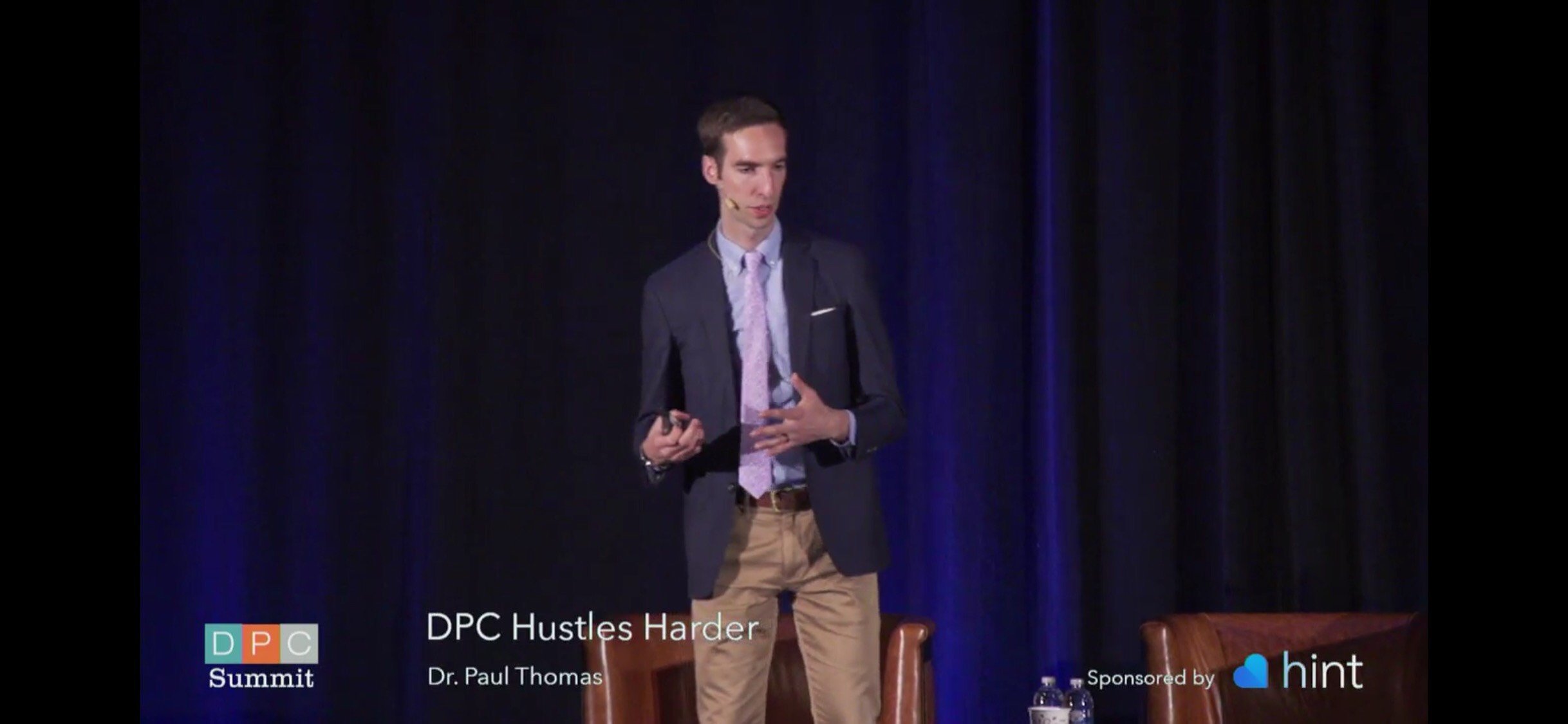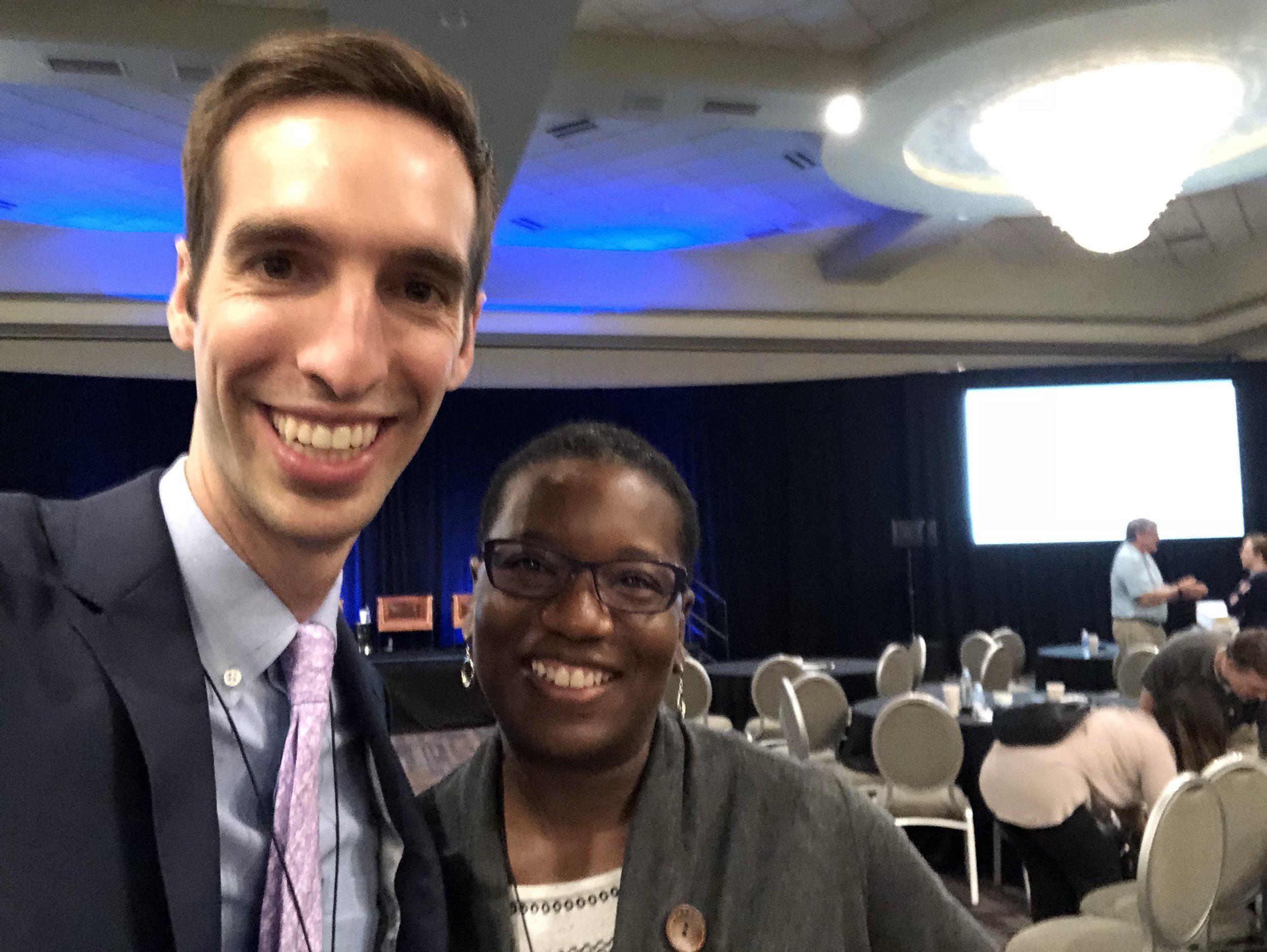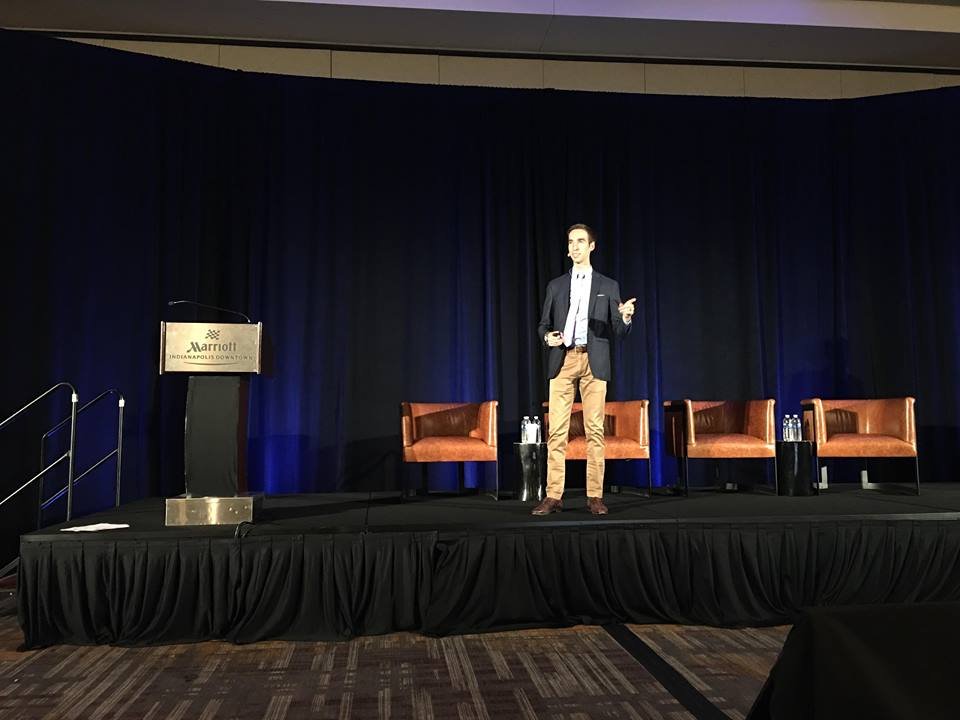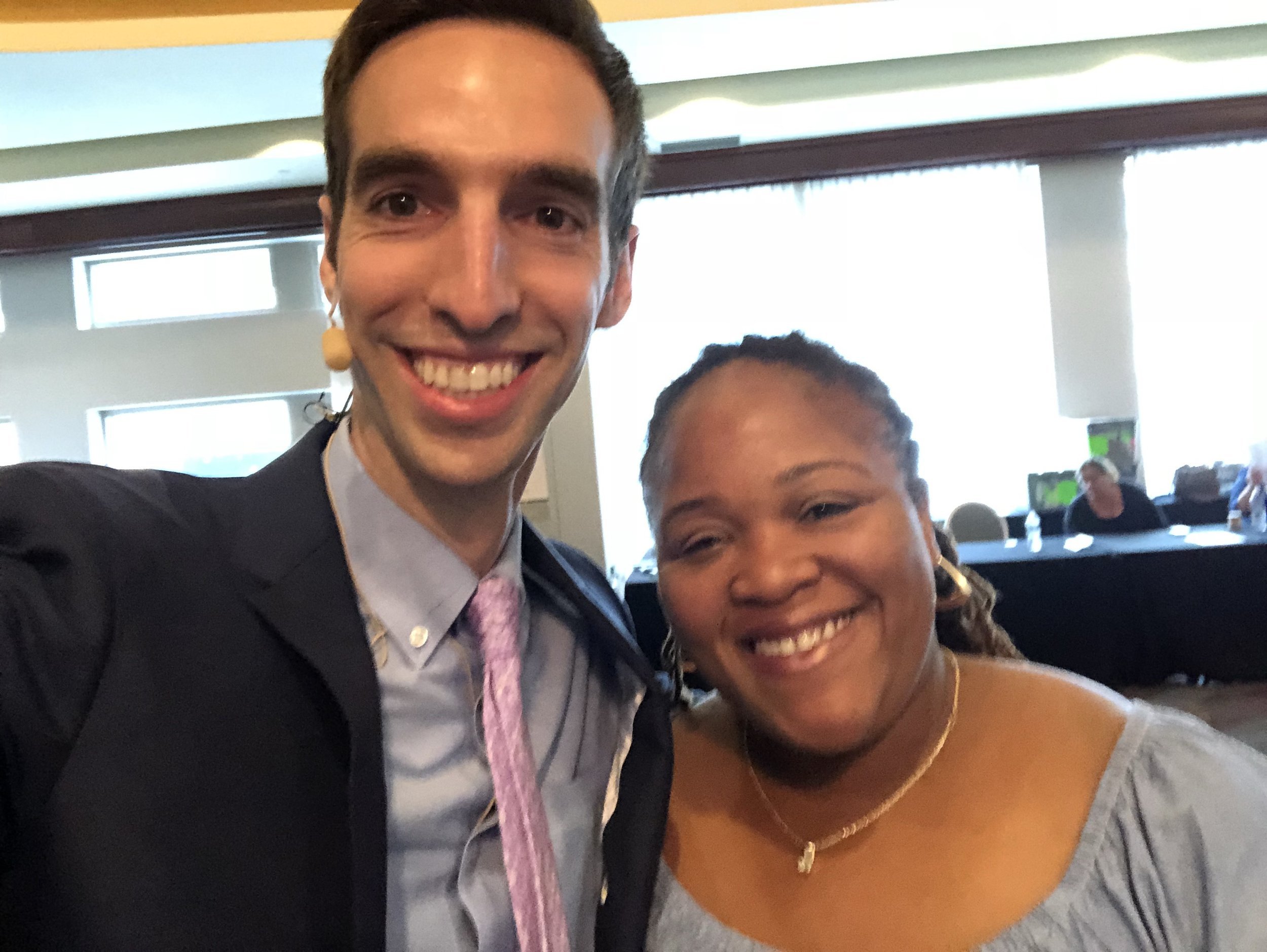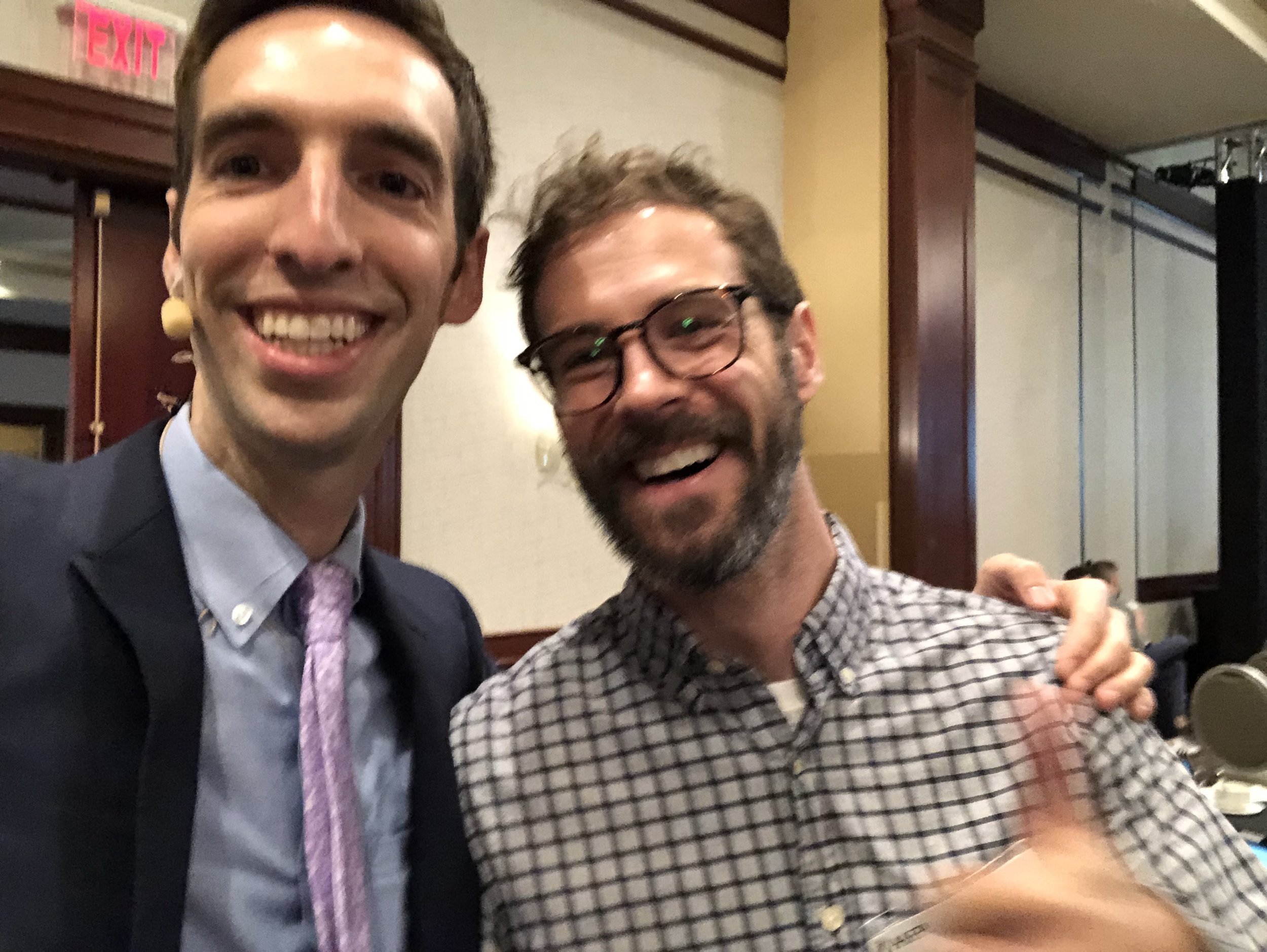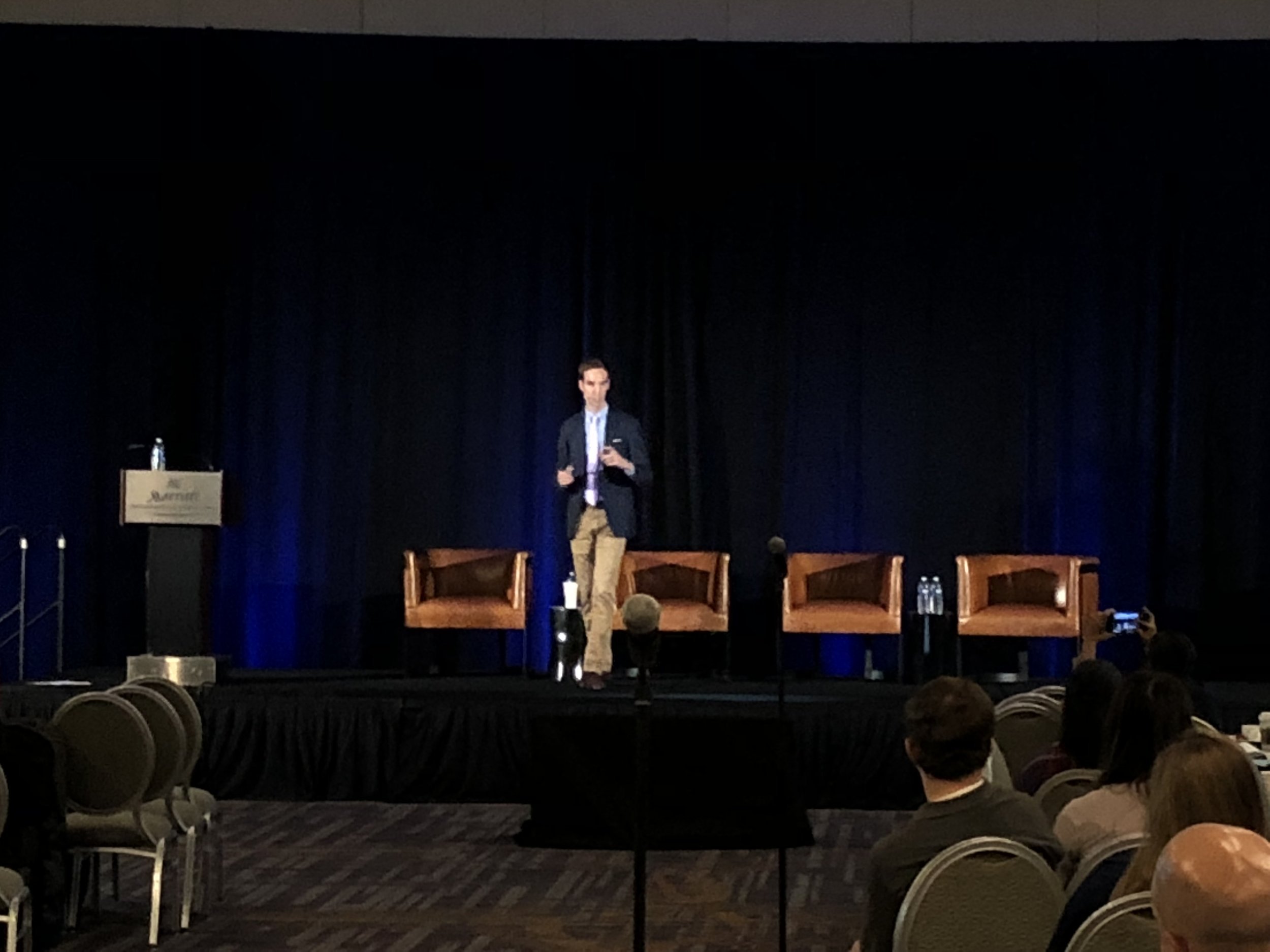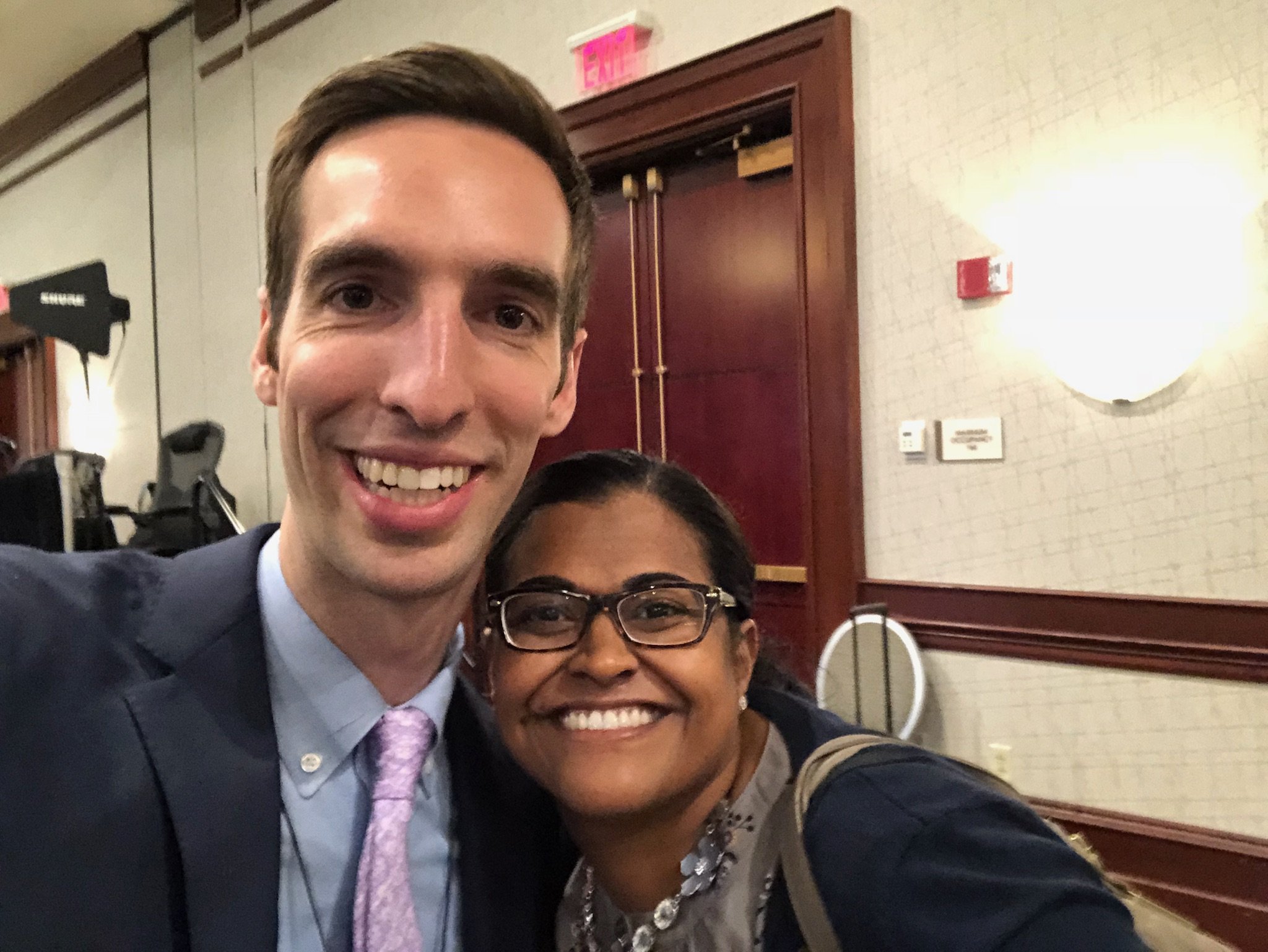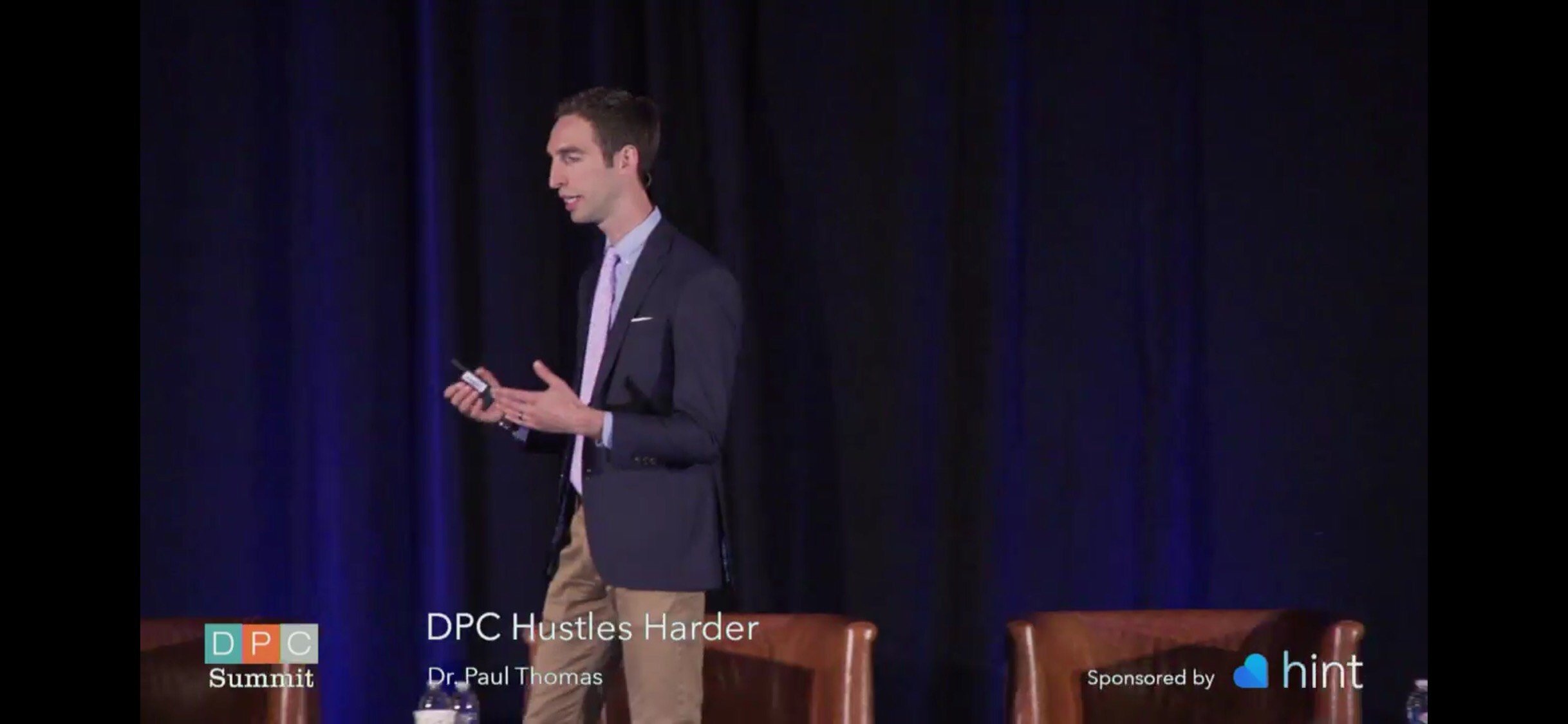Plum Health Blog
Plum Health Featured on Small Talk with Mark S. Lee
Today we were featured on Small Talk with Mark S. Lee. This is our third time appearing on this program and it’s always a pleasure to be interviewed by Mark S. Lee.
Our segment starts at 45:13:
46:30 - we introduce Dr. Raquel Orlich, an Osteopathic physician who joined our practice on July 1st, 2019
46:40 - an update: Direct Primary Care is a membership model for health care that has grown tremendously because of the ever-rising costs of health insurance. There are now roughly 1,200 Direct Primary Care practices across the country. Our practice in Detroit, Plum Health DPC, now has over 500 members and we continue to deliver affordable, accessible healthcare in Detroit and beyond. People choose Plum Health because they can have a personal relationship with their doctor. People choose Plum Health because they have affordable costs for their meds, labs, and imaging services.
48:00 - Dr. Raquel Orlich talks about her education at Michigan State University College of Osteopathic Medicine. She also talks about how she found out about Plum Health DPC and how Dr. Paul and Dr. Raquel had a lot of alignment in their goals for medical care and community-based practice.
49:55 - Dr. Raquel Orlich talks about her scope of practice - taking care of people of all ages and stages. Dr. Raquel has special interests in Women’s Health, Preventive Medicine, and Osteopathic Manipulative Therapy.
50:42 - Mark S. Lee talks about our book Direct Primary Care: The Cure for Our Broken Healthcare System and how we thanked him in our Acknowledgments section for his coverage of Plum Health early on, before other journalists began taking notice.
50:55 - On the growth of Plum Health DPC, we have surpassed 500 members! This constitutes a full panel for Dr. Paul Thomas, and therefore we needed to bring on a second doctor, Dr. Raquel Orlich. At this point, any new patients will be patients of Dr. Raquel Orlich. We want to make it clear that there will always be room for new patients at Plum Health DPC and we will work tirelessly to accommodate anyone who needs or wants our care.
51:46 - Plum Health DPC will be moving into The Corner - Detroit development. This is at the Legendary Corner of Michigan and Trumbull in the Corktown neighborhood of Detroit. This is an amazing place because of all the Major League Baseball history at this site - players like Ty Cobb and Babe Ruth graced this diamond and this is the site of the 1984 Detroit Tigers’ World Series Championship. We will be moving into our new space at The Corner in September 2019 if everything goes according to plan and according to the proposed construction schedule.
53:12 - Dr. Raquel Orlich completed her residency at Ascension Macomb Hospital and she is now practicing in Detroit at Plum Health DPC. Mark S. Lee asks for her thoughts on the move. She wanted to have an opportunity to give back, especially with her background in volunteering. She wanted to make sure that she would have enough to spend with her patients and the capacity to provide low-cost services for patients who need it.
55:20 - Our practice, Plum Health DPC, continues to serve folks who have been left out by the traditional fee-for-service system. Dr. Paul Thomas discusses how we often have new patients sign up for the practice who haven’t been to the doctor for 5 - 10 years because they’ve been uninsured or underinsured and concerned about the cost of their potential medical care.
Thanks so much for listening, and have a wonderful day. If you’d like to have this type of health care for you, your family, or your small business, please reach out at 313.444.5630 or enroll online, here.
Again, a big thank you to Mark S. Lee for having us on his program, Small Talk with Mark S. Lee. Until next time!
-Paul Thomas, MD and Raquel Orlich, DO
Dr. Paul Thomas Featured on the Primary Care Cures Podcast
This week, Dr. Paul Thomas of Plum Health DPC was featured on the Primary Care Cures podcast, hosted by Ron Barshop. The podcast focuses on the people who are making a difference in Primary Care - those who are fighting against burnout, physician shortages, bad models, and forced buyouts.
Dr. Paul Thomas was featured on Episode 25 of the Primary Care Cures podcast with Ron Barshop
This episode had a fairly wide ranging discussion on Direct Primary Care, here are the show notes:
How I found out about the Direct Primary Care model at 2:50
Direct Primary Care Doctors and Burnout and Burnout in the Fee-For-Service system at 3:30
The different Direct Primary Care Conferences, including the AAFP DPC Summit and Nuts and Bolts in Florida at 5:00
The difference between Direct Primary Care and the Fee-For Service Model at 5:45
If all Primary Care Doctors went into Direct Primary Care, would there be a primary care shortage or would the primary care shortage worsen? at 6:10
Can we make Primary Care Medicine more appealing for medical students and residents? at 8:40
The percentage of medical students choosing Primary Care residencies and the Match at 9:40
The Income of a Direct Primary Care doctor at 10:15
Employees in the Direct Primary Care model - are they more satisfied because they have a lower volume? at 11:50
Starting a Direct Primary Care practice straight out of residency - is this unusual? at 12:50
Telehealth and digital communication and how that interfaces with the Direct Primary Care model, as well as texting your doctor at 14:34
Osteopathic Family Medicine Doctor Accepting New Patients in Detroit
Osteopathic Family Medicine Doctor Accepting New Patients in Detroit
Dr. Raquel Orlich is an Osteopathic Family Medicine Doctor who is accepting new patients in Detroit, Michigan. She finished a successful first week at Plum Health DPC, our Family Practice office in Southwest Detroit. She has already been able to incorporate Osteopathic Manipulative Medicine techniques with some of our patient’s treatment regimens. Click here to read more about Osteopathic Medicine and Osteopathic Manipulative Medicine for musculoskeletal concerns.
Dr. Raquel Orlich using her hands to apply an Osteopathic Manipulative Medicine Treatment to one of her patients.
Dr. Raquel is excited to have started at the practice and she is eager to continue to meet new folks of the community. If you or someone you know needs a primary care doctor, Dr. Raquel is accepting new patients. Click here to learn more about Dr. Raquel and her medical interests.
Which Conditions do Family Medicine Doctors Treat?
Family Medicine physicians are the cornerstone to health maintenance and illness prevention. Family medicine physicians can provide annual wellness exams. Routine annual physical exams are important to address age related cancer screening tests, to evaluate for preventable diseases such as diabetes and heart disease, and discuss other lifestyle choices that may be affecting your overall health such as smoking, alcohol consumption, and inactivity.
Family medicine doctors can address up to 90% of your health concerns. They can manage and evaluate health concerns that arise such as the common cold, heartburn management, back pain, ankle sprains, and many others. They can also manage chronic medical conditions such as high blood pressure, diabetes, and asthma.
Family medicine doctors may also offer simple procedures in the office such as laceration repair (sewing up small to medium-sized cuts), knee joint injections, abscess drainage, wart removal, ingrown toenail removal, skin biopsies, and many more.
Why it’s Important to Have a Family Doctor
Detroit is a Health Professional Shortage Area, meaning that there are too few Family Doctors and Primary Care Doctors for the number of Residents in Detroit. There’s roughly 1 primary care physician for every 6,000 Detroit residents. Compare that to 1 primary care physician for every 600 residents in Oakland County, and you find that Detroit has a 10x disparity in access to primary care.
What’s more, An increase of one primary care doctor per 10,000 people has been shown to result in a 5% decrease in outpatient clinic visits, a 5.5% decrease in hospital admissions, a 10.9% decrease in ER visits, and a 7.2% decrease in surgeries.
Why? Because primary care physicians like Family Medicine Doctors are experts at taking care of people in a cost-effective way. Family Doctors are able to treat conditions in their early stages before they become worse or more complicated. For example, if you work with your family doctor to lower your blood pressure, this could prevent a heart attack or a stroke in the future.
How to Schedule an Appointment with Dr. Raquel
To make an appointment with Dr. Raquel, head over to our scheduling link and select her as your doctor. After you submit the information, Dr. Raquel will reach out and offer appointment times.
Thank you for reading and have a great day,
-Dr. Paul Thomas and Dr. Raquel Orlich with Plum Health DPC
What is Osteopathic Medicine?
What is a Doctor of Osteopathic Medicine or “DO”?
The best way to define an Osteopathic Physician is by what they believe. They follow the four tenets or principles of Osteopathic Medicine. They are as follows:
The body is a unit; the person is a unit of body, mind, and spirit.
The body is capable of self-regulation, self-healing, and health maintenance.
Structure and function are reciprocally interrelated.
Rational treatment is based upon an understanding of the basic principles of body unity, self-regulation, and the interrelationship of structure and function.
In short, an osteopathic physician is trained to treat the person as a whole as every body system can relate to one another. Because of this holistic approach, not surprisingly many DOs have a strong interest in preventative health and primary care.
Osteopathic physicians complete four years of medical school and at least three years of residency, just like their Allopathic or MD counterparts. However, in addition to their stethoscopes and medical exam equipment, DOs have special training to use their hands as diagnostic and therapeutic tools with a treatment called Osteopathic Manipulative Medicine.
Dr. Raquel Orlich uses her hands to treat a patient at the Plum Health DPC; this is known as Osteopathic Manipulative Medicine.
What is Osteopathic Manipulative Medicine?
A DO or Doctor of Osteopathic Medicine is trained in Osteopathic Manipulative Medicine also known as “OMM or OMT” during medical school and residency. It is a hands-on technique used to help diagnose, treat, and prevent illness or injury.
During an osteopathic exam, a head to toe assessment will be performed to evaluate for abnormalities that the Doctor can feel with their hands called somatic dysfunctions. These abnormalities may have an effect on your activities of daily living, like dressing, eating, and bathing. They may also disrupt the way you walk and the way you move because they may be painful, and this can impact your overall quality of life.
Somatic dysfunctions can be defined as impaired or altered function of the somatic (body framework) system: skeleton, joints, and myofascial structures (muscles, ligaments, tendons) and their relation to the blood vessels, lymphatic system, and nerves.
A Doctor of Osteopathic Medicine or DO employs treatments that restore and improve range of motion, by focusing on realigning trouble spots. Treatment modalities are patient specific and can include myofascial release (soft tissue work), muscle energy, high velocity low amplitude (traditional chiropractic work), counterstrain, and Still technique. During the visit, time will be set aside to discuss home stretches, exercises, and injury prevention.
What conditions can an Osteopathic Physician Treat with Osteopathic Manipulative Medicine?
Dr. Raquel Orlich uses the Osteopathic Manipulative Medicine technique to diagnose and treat a patient with a musculoskeletal health problem at the Plum Health DPC clinic in Detroit, Michigan.
Here is a list of common issues that can be treated and improved with OMM
Pain related to improper alignment in the back, hips, shoulders, and neck (chronic and acute)
Musculoskeletal pain of the arm and leg
Nerve impingement (sciatica, radiculopathy)
Range of motion of tissues and joints
Headache (tension, migraine, and sinus)
Constipation
If you are dealing with some of the issues listed above, you may be a good candidate for OMM as a safe and effective form of therapy. Getting an appointment is easy, just click this link.
-Dr. Raquel
Doctor of Osteopathic Medicine
Detroit Doctor Lowers the Cost of Prescription Medications
Medication prices are unsustainably high, putting a huge financial burden on every day Americans. In a recent survey, 8% of adult Americans don’t take their medicines as prescribed because they can’t afford them.
In addition, the cost of insulin for an average patient with Type 1 Diabetes doubled from 2012 to 2016. In fact, the cost of medications like insulin are inflating at higher rates than college tuition, college textbooks, and hospital services.
The cost of insulin is increasing at rates far above overall inflation, even outpacing the cost of college tuition and college textbooks.
All of this data is presented to make the point: health care and specifically prescription medications have become more and more unaffordable for average Americans.
Fortunately, there is a better way to get prescription medications. One way is to develop a relationship with a Direct Primary Care physician, who focuses on improving access to affordable health care services, medications, and lab work.
The medications provided by Direct Primary Care doctors are typically given to patients at-cost or at a small markup to cover shipping, bottles, and labels. Direct Primary Care doctors do this because they believe that health care should be affordable and accessible for everyone.
Our Direct Primary Care practice here in Detroit is called Plum Health DPC and we pride ourselves on lowering the cost of medications for our patients. A partial list of these medications and their prices can be found on our Pricing Page as well as by following this link to our PDF of medication prices.
For example, we had a young lady come in to our clinic with an outbreak of HSV or Herpes Simplex Virus that was affecting her genitals. She went to the local pharmacy and requested a course of Valtrex, and she was told that the medication would cost $100. She heard about our clinic, signed up for our services and now is able to get a course of treatment with Valtrex for $1.49.
As another example, we had a diabetic patient who was not actively managing his diabetes because he was scared about how much the medication might cost. He was not seeking medical attention and was not taking any medication at all for his diabetes. Unfortunately, he developed a severe skin infection that required hospitalization. The nursing staff directed him to our clinic and we were able to get his diabetic medication for free through a pharmaceutical program. Additionally, we are able to manage his high blood pressure and high cholesterol for under $5/month.
Because of this type of work that we do for our patients everyday, we have the privilege of being interviewed on WDET’s Detroit Today. This segment will air at 9:00 am on Wednesday May 22nd. Please tune in or share the podcast link to spread the word about how we’re actively lowering the cost of health care and prescription medications in Detroit and beyond.
Thank you for reading and listening,
Dr. Paul Thomas with Plum Health DPC
For more information on this topic, read our previous blog post, titled: How to Find the Best Prescription Drug Prices in Detroit
Detroit doctor, Paul Thomas MD, is using the Direct Primary Care model to the lower the cost of prescription medications in Detroit and beyond
This is an addendum to the Original Post, from WDET’s post:
Henderson also speaks with Dr. Paul Thomas, a primary care physician at Plum Health in Southwest Detroit. Since 2016, Thomas has had his patients pay an affordable monthly membership fee for healthcare and then he gets them their necessary medication at cost. A common blood pressure medication that would normally cost between $5 and $10 when billed through insurance and filled at a pharmacy, is instead costing patients just 27 cents for a month supply.
Paul Thomas MD Presents at Grand Rounds at Wayne State
On February 15th, I had the honor of presenting at Grand Rounds at Wayne State University School of Medicine. Grand Rounds is a weekly presentation and an integral part of medical education. Clinical problems in medicine are discussed by focusing on current or interesting cases. Grand Rounds presentations can also be used to disseminate new research or interesting changes in the healthcare landscape.
For this Grand Rounds for the Internal Medicine Department at Wayne State University, I was asked to share my expertise regarding Direct Primary Care. This is a presentation that I have given in the past to the Michigan Academy of Family Physicians and at Oakland University William Beaumont School of Medicine. I updated the presentation to include a clinical case, or a person in our practice who I helped by managing their diabetes and hypertension. The personal information is anonymized to protect their identity.
It was a tremendous honor to be invited by my alma mater to give a presentation of this magnitude, and I’m happy to share this information about Direct Primary Care. I believe that healthcare should be affordable and accessible for everyone, and we will need more doctors to adopt Direct Primary Care practices to meet this goal.
Thanks for reading and watching,
-Dr. Paul Thomas of Plum Health
What is a Plum Health Membership?
What does it mean to be a member of Plum Health dpc?
What’s involved in being a member of Plum Health DPC? We hear this question often. So, it’s worth taking some time to address it head on. Plum Health is a family medicine service run by Dr. Paul Thomas. Our mission is to deliver affordable, accessible healthcare. We are unlike other offices in several ways. We highly value the doctor-patient relationship and we routinely spend thirty minutes to one hour with each of our patients per visit.
This time together is essential because it allows us to build a trusting relationship. When you’re a member of our practice, when you’re a member of Plum Health DPC, you have the opportunity to build this trusting and healing relationship with Dr. Paul Thomas over time.
In contrast, at a typical family medicine office in the fee-for-service or insurance-based system, doctors prioritize seeing as many patients as possible to increase their payments from insurance companies. This is why you may only have five to twelve minutes with a primary care doctor in the insurance-based system.
Committed to a long-term relationship between doctor and patient
Being a member of Plum Health means that you’re committed to being a part of the membership model. If you’re looking for a one-off visit or one-time services, Plum Health probably is not the right fit for you. However, if you’re looking for a dependable physician who is responsive to your calls, texts, and emails at anytime of day, who cares about you as an individual and not as another number, then Plum Health DPC will be a great fit for you.
Furthermore, we love taking care of people who believe what we believe - that health care should be individualized, that the doctor-patient relationship should be strong and seamless, that health care should be affordable and accessible. If you value these tenets like we do, then we’d love to have you as a part of the Plum Health DPC membership.
How much does a plum Health DPC membership cost?
A membership with Plum Health DPC costs $10/month for children, and starts at $49/month for adults. We have our full pricing structure here. With that membership, you can visit the office anytime without a copay. You also can call, text, or email the doctor anytime. Additionally, members of Plum Health DPC are able to get wholesale medications, at-cost labs, and at-cost imaging services at a fraction of the typical cost.
How do I sign up for a Plum Health DPC membership?
The signup process for Plum Health DPC is an easy one. Our online form takes about 5 minutes to complete. The form will ask for a credit card to complete the registration. Your card will not be billed until your account is confirmed by our staff and an appointment is made. We want to make sure you’re a good fit for our practice before we start billing you for the service.
Thanks for reading and for watching, and have a wonderful day.
Dr. Paul Thomas with Plum Health DPC
Is Direct Primary Care the Cure for Our Broken Healthcare System?
Is Direct Primary Care (DPC) the Cure for our Broken Healthcare System? That's the question that Caitlin Morse, PMP posed to me after reading my book with the same title (link to the book).
Direct Primary Care (DPC) is a growing model of health care across the Nation, but does it live up to the hype? This is the question from Caitlin Morse PMP in her article on LinkedIn, among other questions, below.
During this conversation between myself, Paul Thomas MD, and Caitlin Morse PMP, we discuss the following:
What happens when your DPC doctor is sick or goes on vacation?
What does Plum Health use for EMR/EHR if not a system designed to optimize billing?
Would this model break if all of the patients currently on Medicaid were switched to this model?
The difference between Direct Primary Care and Concierge Medicine.
What about childhood vaccinations? Public health facilities won’t vaccinate people with any insurance, even if self-pay. I was quoted thousands of dollars for out-of-network vaccines. These are included with every insurance plan at the PCP - are they included with DPC?
How does this model handle malpractice insurance/liability? Does more of a focus on preventative care expose primary care doctors to greater liability?
Could DPC provide follow-up for cancer patients in remission, stroke patients post-rehab, post-acute care, etc?
The claim is made that 80-90% of what the average patient needs could be addressed by a family physician at a DPC facility, but it would be helpful to understand what that number really represents and how it compares to the current use of PCPs. Is that 80-90% of a patient’s lifetime health needs or 80-90% of what the average patient goes to the doctor for in a single year? Or everything that 80-90% of the population need from a doctor? What percentage of healthcare costs does this represent?
Who are the people who use Direct Primary Care Services? What are their income levels? Why should a family sign up for Direct Primary Care?
These are questions that folks have about Direct Primary Care and how they can use these DPC services and benefit from them, so I’m happy to take the time and answer them. Thanks for reading and watching, and have a wonderful day.
-Dr. Paul Thomas with Plum Health DPC
Plum Health featured in Excelerate America's Tenacity Tales
This week we were featured in Excelerate America’s Tenacity Tales! Here’s what they said about us:
Imagine being able to access your doctor anytime by phone, text or email. And knowing that you can get in to see him or her that very day, or within 24 hours at the longest.
Well Dr. Paul Thomas and Plum Health DPC is making this revolutionary possibility a reality for hundreds of Metro Detroit, Michigan-based patients.
The concept is specifically called Direct Primary Care. It's a completely new healthcare movement, one that's so different than the system most people are used to that Dr. Paul was compelled to write a book about it.
He's also constantly invited to speak about it at large conferences and galas, and was even invited to the White House earlier this month as a guest of Health and Human Services Secretary Alex Azar.
Read more about Dr. Paul's incredible entrepreneurial journey in an all-new healthcare space.
What’s the obstacle that you’ve overcome that you’re most proud of?
This has been a big year!
Publishing the book, "Direct Primary Care: The Cure for Our Broken Healthcare System", has been a big accomplishment for me.
It was not difficult to write the book, but having the intentionality to move the book from a completed word document on my desktop computer to a physical product that you can buy on Amazon has been challenging, with several small obstacles to overcome week by week and month by month.
I guess it's a good metaphor for being in business—It's not hard to have a great idea, but it is difficult to have the consistency, grit, and intentionality to advance that idea every day and every week towards your stated goals.
Additionally, I'm proud of signing a lease to grow into a larger space. Our practice has grown from zero patients two years ago to over 425 patients today, so we will need a larger office to accommodate the diverse needs of our patients.
The process of signing a lease, designing an office space, and working with several different professionals to get the job done has been challenging.
What do you know now that you wish you’d known then?
Experience is the greatest teacher, and I've made several mistakes along the way.
My biggest mistake by far has been undervaluing my time and talents. I recently finished reading "Entrepreneurial You" by Dorie Clark and it talks about having the courage to charge for your services, including during speaking engagements.
I'm glad to have asked for payments for past speaking gigs, and I need to be better at valuing my time and talents with future consulting gigs and speaking engagements.
What’s your best advice to other small business owners?
If you're waiting for the perfect time to start, that moment when you feel ready, you'll never start.
One quote to reinforce this is from Hugh Laurie, the actor who played “House MD”. His nugget of wisdom is as follows: “It’s a terrible thing, I think, in life to wait until you’re ready. I have this feeling now that actually no one is ever ready to do anything. There is almost no such thing as ready. There is only now. And you may as well do it now. Generally speaking, now is as good a time as any."
Fortunately I had a really compelling reason to start my business, otherwise I may still be dragging my feet about the perfect time to launch. Anyways, a community member signed up online, before I was ready to start. He called me on a Tuesday saying "I just took my last antidepressant, so I need you to be my doctor now." That day, I ordered $100-worth of medications, including the antidepressant that he needed. The next day, I received the medications and made the house call to his rental.
All I had was my doctor's bag, my stethoscope, a blood pressure cuff, oximeter, my laptop, and the medications he needed, but I was able to meet a previously unmet need at an affordable price for this person.
So, my advice is to stop waiting and do the thing. Done is better than perfect.
What’s a typical day like for you?
I typically wake up and go for a run to get my mind and my body ready for the day. Then I make coffee and have breakfast.
Most days, I work in the office 9am - 5pm, sometimes 8am to 6pm or later depending on what needs to be done for which patients. A lot of my patients are working class folks, so they will need appointments outside of their typical eight hour shift and I do my best to accommodate them and deliver an excellent level of service.
I typically see 5-10 patients each day, and use my downtime to write blog posts, work on big projects, follow up on lab results or imaging results, order more medications, and leverage my social media channels to reach more customers.
For a solo entrepreneur, I catch myself spending too much time working on the minutia of the business rather than setting big goals for the business, i.e. working in the business rather than working on the business. Anyways, I'm looking forward to scaling up and adding another doctor so that I can focus more time on the big goals.
What’s next for Plum Health DPC?
Great segue (can we use bad jokes?).
I've mentioned before, but I just signed a lease for a 1,700 square foot space because we're reaching capacity in our small, one room office and I'm looking to grow both in space and in personnel.
My mission is to serve more of the Detroit community and Southeast Michigan with affordable and accessible health care services, so I am leveraging the tools I have available to meet these needs.
Look out for big things in 2019 from Plum Health DPC!
Family Doctor on Flashpoint with Devin Scillian
Today, we were featured on Flashpoint on WDIV with Devin Scillian. The conversation focused on Direct Primary Care, and our clinic in Southwest Detroit called Plum Health DPC, which is making healthcare affordable and accessible in Detroit and beyond.
Devin Scillian is the host of Flashpoint, and a highly respected journalist in Detroit, so it was a tremendous honor to be invited onto the program to discuss this important issue. Flanking Devin Scillian was Frank McGeorge, MD, an emergency room physician and the Good Health reporter for WDIV. Dr. McGeorge was brought in to provide an additional layer of insight into health care and ask questions about Direct Primary Care from the lens of a physician/health care insider.
We also discussed our book, Direct Primary Care: The Cure for Our Broken Healthcare System.
Below I will paraphrase parts of the show:
Direct primary care introduction
Devin Scillian: Should your doctor be subscription-based? A new model allows as many visits as needed, for one monthly rate. There was a discussion about new concepts in health care… For some time I’ve been wanting to talk about a new idea in Health Care, it’s called Direct Primary Care. It doesn’t come from your employer, or the government. It’s basically an agreement between you and your doctor - you pay a monthly fee to subscribe to your physician. All the visits that you might need that month are covered. You need medications? Well, they cut a deal on prescriptions, which you would pay out of pocket.
We’ve had a lot of debates about what to do with American Health care - there’s talk about single payer health care and a universal system. Getting less conversation, and we’ll correct that this morning, is the idea of Direct Primary Care, and the Author of a new book Direct Primary Care: The Cure for Our Broken Healthcare System, is with us this morning, Dr. Paul Thomas of Plum Health DPC. And we have Dr. Frank McGeorge, our medical reporter from WDIV Local 4, who will ask better questions than I would.
So you can get rid of health insurance?
Devin Scillian: The first thing I want to get to, is to get rid of insurance and the government?
Paul Thomas, MD: I unequivocally recommend that folks have health insurance, but for your routine primary care services, the costs are much less if you purchase them directly through your doctor. You want to maintain a health insurance plan that you’re comfortable with, and use the free market or Direct Primary Care services to the lower the costs of your meds, labs, imaging services, and doctor visits.
So this is a club, basically? and what is your Pricing like?
Devin Scillian: So, I would kind of use you and your partners like I belong to a club, basically?
Paul Thomas, MD: Yes, it’s a membership model for health care, so you can come in and see us any time you need to. Visits are included in our pricing structure:
The 2018 pricing for Plum Health DPC, as shown during an interview between Paul Thomas MD, Devin Scillian, and Frank McGeorge MD on Flashpoint on WDIV, Local 4 News.
Devin Scillian: Unless your in a health plan that I’ve never heard of, this looks really reasonable, much less than you and I are paying, doc (Dr. Frank McGeorge).
Dr. Frank McGeorge: This is a very different way of doing things, clearly, and it does make sense. I have to say, I really applaud what you’re doing, because I think it’s wonderful that you are getting back to the most basic form of providing health care, that is directly to the patient, cutting out all of the bureaucratic nonsense as much as possible. You don’t need a biller and coder in your office, you save that money right off the top, and you pass that savings directly onto the patient.
Biggest concerns about the direct primary care model?
Devin Scillian: So your biggest concerns with it are what?
Dr. Frank McGeorge: Well what’s interesting to me, is that you’re doing what we used to do in Family Practice one hundred years ago, you were the small town doc. Everyone would come to you with all of their problems. But the problem now is that back then you could know all of medicine, but now, medicine is so much more complex. I guess, how do you deal with specialty referrals? The things that are out of your family practice domain.
Paul Thomas MD of Plum Health DPC on Flashpoint with Devin Scillian and Dr. Frank McGeorge of WDIV Channel 4 in Detroit, Michigan, discussing Direct Primary Care.
Paul Thomas MD: The typical scope of a family medicine doctor is 70 - 80% of anything that you might walk into the doctor’s office with. So I can handle 70 - 80% of your concerns, the rest you would typically refer to specialists. Now in my model, we use an e-consult platform called Rubicon, where we can write up your case history and send it to a Board Certified Ophthalmologist or Dermatologist or Cardiologist with a photo or a copy of your EKG, and get a second opinion at no charge to you the patient.
Devin Scillian: No charge to me, because you’ve developed a relationship with these specialists.
Paul Thomas MD: Exactly, it’s an e-consult platform called Rubicon that any primary care physician can use, and I use it because I actually have the time to listen to you fully, to take down copious notes about your condition, and send those over to the specialist and get a second opinion within about 12 hours.
How many patients can a direct primary care doctor handle?
Devin Scillian: Have you figured out where the sweet spot is for how many patients you can handle?
Paul Thomas MD on Flashpoint with Devin Scillian and Dr. Frank McGeorge of WDIV Channel 4 in Detroit, Michigan, discussing Direct Primary Care.
Paul Thomas MD: The typical number of patients per physician in the Direct Primary Care model is 500 - 600 patients. Now, contrast that with the typical family doctor who has to have 2,400 patients, so they’re seeing 1% of their panel each day or 24 patients each day. In our model, when we see 1% of our panel, we see 5 - 6 patients each day. And, that gives me an hour per patient to really sit down with you and understand what you’re going through, and help you through that situation.
What is the pricing like for medications and lab work?
Devin Scillian: You and I have been looking at these price lists (to Dr. McGeorge), because they cut deals on prescriptions and on lab tests. With your trained eye, and the time you spend in the Emergency Room, how does everything look?
Those forms for your reference: List of our laboratory prices. List of our medication prices.
Dr. Frank McGeorge: This is clearly the way it should be. One of the things I’ve always rallied against is the opaqueness of how billing and charging is done in the medical care system. Frankly, if you go into hospital A versus hospital B, you don’t know how much you’re going to be charged for any given test because it’s different in each hospital. This (pricing) is great because it’s all laid out in advance and it looks like it’s done, basically, at cost.
Paul Thomas MD: Exactly, because you’re already paying the membership, I want to give you as much value for your healthcare dollar as possible. So, we make all of our prices transparent, and we only charge the cost of the medication, or the lab, or the imaging service so you get the most value out of the service as possible.
Can Direct Primary Care Doctors make money in this system?
Devin Scillian: I don’t know how to ask this delicately, but is this lucrative for you? Do you make a fair amount - enough money? Or are you just messing with the system?
Paul Thomas MD: As the membership grows, as the doctor gets to full capacity, you earn about what you would make as an employed physician, maybe a little bit less. But, we have a saying in the Direct Primary Care movement that nothing pays like autonomy. I can be the physician I was meant to be. And, in this model, it’s really inspiring for other doctors who want to join this movement because you have the ability to practice medicine on your own terms, and not at the dictates of insurance companies or government heath care systems.
The full video can be seen above, and on the Flashpoint website.
Thank you so much for reading and watching,
-Dr. Paul Thomas with Plum Health DPC
Paul Thomas, MD with Devin Scillian and Dr. Frank McGeorge of WDIV Detroit on the set of Flashpoint. The discussion on Flashpoint this week centered around Direct Primary Care, a new model for health care that aims to improve the quality of healthcare while decreasing overall costs.
Paul Thomas, MD of Plum Health DPC, Devin Scillian of WDIV Channel 4 News in Detroit, and Dr. Frank McGeorge, an Emergency Medicine Physician and broadcaster with the Good Health segment on WDIV local 4. During Flashpoint this week, we discussed Direct Primary Care and the opportunity that it provides to change our healthcare system from the ground up. Devin Scillian was also kind enough to mention our book, Direct Primary Care: The Cure for Our Broken Healthcare System.
Paul Thomas MD on the DocPreneur Podcast
This week, we were featured on the DocPreneur Podcast, which is created and distributed by Michael Tetreault, Editor-in-Chief of the Direct Primary Care Journal. After publishing the book, Direct Primary Care: The Cure for Our Broken Healthcare System, Michael reached out about having me on the podcast.
I’m sincerely happy to share my experiences in Direct Primary Care, to teach and inspire other doctors to take this journey to an authentic, fulfilling practice of medicine, to become the doctors they were meant to be. This is one of the biggest reasons why I continue to get the word out about Direct Primary Care - I believe in this model and its ability to transform our healthcare system in the United States.
I want to personally thank Michael Tetreault for being on the vanguard of Direct Primary Care by creating educational materials for DPC doctors. Enjoy the podcast, and let me know what you think!
Thank you for reading, watching, and listening,
-Dr. Paul Thomas with Plum Health DPC
To read our book on Amazon, click this link.
Family Doctor Speaks at the Detroit Public Library
In October, I had a great opportunity to speak at the Detroit Public Library about health care. The focus of my talk was our Family Medicine practice in Southwest Detroit called Plum Health DPC. The DPC stands for Direct Primary Care and our mission is to make healthcare more affordable and accessible for everyone.
This talk was well attended by Detroiters and Library Patrons who wanted to learn more about lowering the cost of their health care. Folks in Detroit and across America are facing ever-rising costs for health insurance premiums and prescription drugs, ER visits and lab work.
One such Detroiter showed me the bill from a recent ER visit, which illustrates the inflated cost of medical care, especially the medical care delivered in emergency departments.
A Detroiter shows me their medical bill, showing the inflated costs of a chest x-ray, breathing treatments, blood work, and an EKG. Shared with permission.
So let’s run through this bill and demonstrate the inflated costs of health care services when you receive them through the emergency department.
This person was charged $120 for a Basic Metabolic Panel, a test that costs $6 in our office.
This person was charged $47 to check their Magnesium level, and it’s $10 in our office.
This person was charged $57 for an EKG in the emergency department, and it’s $2 in our office.
A 2 view x-ray in the Emergency Department cost this person $107, but it can be obtained for $38 in the community.
Worst of all, this Emergency Department visit was billed out at a Level 5, or the highest level of severity for any emergency department visit. This would be on par with a stroke, heart attack, or gun shot wound. Because of this high level coding, this person was charged $1,204.00 for this visit, which was an asthma attack.
At Plum Health, we value price transparency, and we want to make sure that folks understand the costs of their medical care before those services are rendered. This prevents people from being sent to medical bankruptcy, the leading cause of bankruptcy in the United States.
“A study done at Harvard University indicates that this is the biggest cause of bankruptcy, representing 62% of all personal bankruptcies. One of the interesting caveats of this study shows that 78% of filers had some form of health insurance, thus bucking the myth that medical bills affect only the uninsured.” - Investopedia article
This is why I get out into the community and speak at different events - I want to educate folks about how they can live healthier lives and prevent financial calamity in the process.
Thanks for reading, and have a wonderful day,
-Dr. Paul Thomas with Plum Health DPC
Want to take a deeper dive? Read our book, published on Amazon.
Paul Thomas MD at the Detroit Public Library speaking about Direct Primary Care.
Paul Thomas MD of Plum Health DPC speaks at the Detroit Public Library about Direct Primary Care and making health care more affordable and accessible.
Paul Thomas MD Speaking at Michigan State University
This week, I was invited to speak at Michigan State University College of Osteopathic Medicine regarding Direct Primary Care. It was a neat experience because the school has three campuses and my lecture was simulcast to the other two campuses. I spoke at the Detroit location (did you know that Michigan State University has a medical school campus in Detroit?) and the talk was broadcast to the East Lansing and Macomb campuses.
The lecture was an hour, and in the first 45 minutes I discuss the current crisis in primary care, I define Direct Primary Care, and then I give real-world examples of how Direct Primary Care is working in our clinic in Southwest Detroit. During the last 20 minutes, I answered as many questions as I possibly can.
I love speaking with students about our healthcare system and about Direct Primary Care because I see the lightbulb go off - I see them ‘get it’ and understand the model and why it works well. I love witnessing that moment - the “aha” moment.
A few students bought my book about Direct Primary Care after the event and the pictures below are of me signing the book. Thanks for reading and have a wonderful day.
-Dr. Paul Thomas with Plum Health DPC
Get your copy of the book, Direct Primary Care: The Cure for Our Broken Healthcare System
Signing a book for one of the Michigan State University College of Osteopathic Medicine Students.
Dr. Paul Thomas MD of Plum Health DPC signing the book, Direct Primary Care: The Cure for Our Broken Healthcare System after a speaking engagement at Michigan State University College of Osteopathic Medicine in Detroit, Michigan.
Dr. Paul Thomas at the Future of Family Medicine Conference
Last month, I had the opportunity to speak with over 100 students and residents interested in the specialty of Family Medicine. This was at the aptly named “Michigan Future of Family medicine Conference” hosted by the Michigan Academy of Family Physicians. The event was held at Michigan State University and hundreds of students were able to attend on a Saturday morning in October.
The invitation for the fifth annual Michigan Future of Family Medicine Conference, hosted by Michigan State University and the Michigan Academy of Family Physicians (MAFP).
For students, it can be hard to get excited about the future of Family Medicine. Family Physicians work long hours, have to deal with tons of insurance bureaucracy and red tape, and earn less than their colleagues in other specialties. It can leave students deflated.
Dr. Paul Thomas of Plum Health DPC speaks at the Michigan Future of Family Medicine Conference 2018 Panel on Career Options, taken from the Michigan Academy of Family Physicians’ (MAFP) twitter account, here: https://twitter.com/MIFamilyDocs/status/1051106817705725953
However, I find that when I speak about Direct Primary Care and the opportunities that a DPC model of care can provide, students are energized and excited about the future of family medicine. You see, Family Medicine Doctors have the most tools in their tool set and can have the biggest impact on the community level - we lower admission rates to hospitals and decrease the cost of care for our patients. We also lower the rates of disease and death rates from disease.
But, as mentioned previously, Family Medicine is less desirable from the student’s perspective as it pays less and is a difficult job because of insurance hassles.
I think our profession, Family Medicine, is at a real moment of crisis, but also at a crossroads for opportunity. We can continue to be a part of the healthcare industrial complex, billing and coding, racking up charges on our patients, or we can adopt the Direct Primary Care model and serve our patients and our community with affordable and accessible health care services that are more just and compassionate in their delivery.
That’s my message, I’m glad to have had the opportunity to share it, and I’m very happy to have seen it resonate with so many energetic and eager medical students and residents.
Thanks for reading, and have a wonderful day,
-Dr. Paul Thomas, MD with Plum Health DPC, a Direct Primary Care service in Southwest Detroit
Dr. Paul Thomas of Plum Health DPC speaks at the Michigan Future of Family Medicine Conference 2018 Panel on Career Options, taken from the Michigan Academy of Family Physicians’ (MAFP) twitter account, here: https://twitter.com/MIFamilyDocs/status/1051097050086035456
I had the pleasure of speaking to an audience of over 100 + Medical Students and Medical Residents at the Michigan Future of Family Medicine Conference in October 2018. I shared the stage with Dr. Sheala Jafry, Dr. Fatin Sahhar, and Dr. Amy Keenum. The event was held at Michigan State University and hosted by the Michigan Academy of Family Physicians (MAFP).
Plum Health serves a Health Professional Shortage Area
Plum Health serves a Health Professional Shortage Area, and we’re proud to do this. Part of our mission is to deliver affordable, accessible health care services in Detroit and beyond. This is important because we are passionate about making health care available to communities that have been traditionally neglected by the existing medical system.
Unfortunately, doctors and hospital systems choose to locate their practices in neighborhoods and communities that have higher income levels and higher rates of private insurance coverage. You see, doctors in the current fee-for-service system only receive what they are paid by third party payers, like Medicare, Medicaid, and private insurance companies.
And some of these payers pay more for services than others. For example, Medicaid reimbursement is much lower than Medicare reimbursement or Private Insurance reimbursement. This really hurts Detroit as a greater proportion of Detroiters rely on Medicaid for health insurance relatives to other counties in our region.
Therefore, the current fee-for-service system incentivizes doctors to locate their practices in higher-income communities, and thus leaves lower-income communities medically underserved. As an example, the ratio of primary care physicians to general population in Detroit is roughly 1 primary care physician for every 6,300 residents. In Oakland county, there’s about 1 primary care physician for every 683 residents.
Below are the medically underserved areas in Detroit as of 2017. We are proud to be practicing in the Southwest Detroit/Corktown neighborhoods and serving our neighbors, community members, and small businesses with high-quality medical services.
Thank you for reading and understanding this important issue,
-Dr. Paul Thomas, MD with Plum Health DPC in Detroit, Michigan
More on the above map: Health Resources and Services Administration (HRSA), a Federal Agency, develops shortage designation criteria to determine whether a geographic area, population group or facility is a Health Professional Shortage Area (HPSA) or a Medically Underserved Area/Population (MUA/P). HPSAs may be designated as having a shortage of primary medical care, dental or mental health providers. They may be urban or rural areas, population groups, or medical or other public facilities. MUAs may be a whole county or a group of contiguous counties, a group of counties or civil divisions, or a group of urban census tracts in which residents have a shortage of health services. MUPs may include groups of persons who face economic, cultural or linguistic barriers to health care.
Additional information on Medicaid rates in Wayne county, take from MLive:
Plum Health DPC on WDET
This week, we ran an advertisement on WDET with the Corktown Business Association. I have been a long-time fan, listener and supporter of WDET and it’s one of the best places to advertise for our business because the people who listen to WDET are those who think and care deeply about Detroit and the issues facing the city.
Also, WDET does an excellent job of informing the public about important issues of the day and it’s a great platform for community-level information and journalism.
At Plum Health, we are addressing the lack of health care and primary care resources in the City of Detroit, and we know that this mission resonates with people who care about the city and its future.
As a part of the Corktown Business Association, we work with other business owners in the neighborhood to make it a better place to live, work, shop, eat, play, and be healthy. I’m proud to be in the Corktown Business Association and I’m glad we had the opportunity to tell the story about a wonderful place to be with vibrant businesses, Corktown Detroit.
Here’s the spot that we sponsored on WDET, with some images added from our archive:
Thanks for reading, and have a wonderful day,
Dr. Paul Thomas, Physician with Plum Health DPC
Paul Thomas, MD Speaks at Oakland University William Beaumont School of Medicine
This week, I was able to speak at the Oakland University William Beaumont School of Medicine to a group of about 50 enthusiastic first and second year medical students on September 24th, 2018. This presentation focuses on the philosophy and practice of Direct Primary Care and the main points of a DPC practice.
I believe in Family Medicine and I believe in Family Medicine doctors and their ability to fix our broken healthcare system, to remake it into a compassionate, intuitive system that delivers comprehensive care.
Because of this belief, I speak as often as I can to medical students, residents, doctors, and allied health professionals about Direct Primary Care and its transformative power in our healthcare ecosystem.
Thanks for reading and watching,
-Dr. Paul Thomas, family medicine physician practicing at Plum Health DPC in Southwest Detroit
I had a blast speaking at the AAFP Direct Primary Care Conference
I cannot tell you how much fun I had speaking at the AAFP DPC Conference, I loved it this much:
Dr. Paul Thomas speaking about Branding and Marketing your Direct Primary Care practice at the American Academy of Family Physicians Direct Primary Care Conference in Indianapolis, Indiana.
Seriously, I had an amazing opportunity to speak directly with my Direct Primary Care colleagues about Branding and Marketing your Direct Primary Care practice at the American Academy of Family Physicians Direct Primary Care Conference in Indianapolis, Indiana.
I believe that our family physicians are the backbone of the health care system in America, and I am encouraged and enthused by their willingness to step into their own power and create ideal practices that optimally serve their individual patients and their greater communities.
I'm all in on helping my colleagues create their best practices and to become the doctors they were meant to be. One of the biggest challenges that doctors face is in the realms of branding and marketing as most family physicians have little or no training in these areas.
What I conveyed in my lecture was how to create a brand, engage in branding your practice, and actively market your practice. I'm posting about this again because I'm that amped up and because the lecture is now live on the AAFP website, here.
Thanks for reading and for watching! Below are some bonus screenshots from the talk. If you're an individual looking for this type of care for yourself, your family, or your employees, please call me at 313.444.5630 or send me an email at paul@plumhealthdpc.org. If you're a DPC doctor and you need help branding and marketing your practice, reach out to me because I'm happy to help.
Sincerely,
- Dr. Paul Thomas, MD, physician with Plum Health DPC in Southwest Detroit
How to Find the Best Prescription Drug Prices in Detroit
As many of us are aware, the price of prescription drugs can be astronomical. People are paying for a retail markup at pharmacies, often paying 10 - 20 times as much as the drug actually costs at wholesale. Even worse, insurance companies often charge more for medications purchased via your insurance plan than the medication would cost if you bought it at the cash price.
Why is this important to me? I'm a Family Doctor in Southwest Detroit and I took an oath to do no harm, and for me that oath also includes doing no financial harm. So, I am focused on lowering the cost of health care for my patients and the greater community.
How to find the best prescription drug prices in Detroit
If you're like many people, you probably go to the pharmacy with your Rx card or prescription card from your health insurance company. You then have the pharmacist 'run the card' to find out if you get a discount when you purchase medication.
What you should do instead is ask the pharmacist, "what is your cash price for this medication?" Also, you can ask for any coupons that the pharmacist might have. If you are dissatisfied with the price, then pull out your insurance card and ask for them to 'run the card'. This will ensure that you have a fair price point to start from.
In addition, you can shop around for the best prescription drug prices in Detroit or in your local community by comparing prices online. Using tools like GoodRx.com can help you find the exact price for the medication you need.
Using Direct Primary Care to Lower Drug Prices
There is another option to find even lower prescription drug prices. That option is called Direct Primary Care. In the Direct Primary Care model, doctors aim to provide as much value as possible for patients' health care dollars. In simple terms, we DPC doctors try to lower the cost of health care.
What does this look like? It looks like 70% - 90% savings on prescription drug prices in Detroit and the Metro Detroit Area. Just check out this chart and see for yourself the actual, wholesale cost of the medication compared to the price you would pay at the pharmacy with the retail pharmacy mark up, or the inflated price.
Original image taken from Consumer Reports.
How do we do this? At Plum Health DPC, we buy the medications at a wholesale price and then we sell them to our patients at-cost. This means if we buy a bottle of 1000 blood pressure medications at $10, each pill costs 1 cent. Then your monthly prescription cost for that blood pressure medication is 30 cents.
In the above example, we are able to get Pioglitazone (Actos) for $4.30 per month, Celecoxib (Celebrex) for $6.47 per month, Duloxetine (Cymbalta) for $7.04 per month, Atorvastatin or Lipitor for $2.09 per month, and Clopidogrel or Plavix for $4.28 per month. The total monthly cost would be $24.18 for our patient, and that is a huge cost savings compared to the nearest retail pharmacy.
By lowering the cost of medications, we can improve access to primary care services, better control blood pressure and diabetes, and therefore decrease the risks of heart attacks, strokes, and complications of diabetes in our community. This will lead to lower rates of disability and death, or a healthier society.
We are proud to make a difference in this way. Thank you for reading and learning about the cost of prescription drugs, and let me know if I can help you or a family member lower the cost of health care.
Sincerely,
- Dr. Paul Thomas, MD with Plum Health DPC
Speaking at the AAFP DPC Summit 2018
Speaking at the AAFP DPC Summit
This weekend, I had the privilege of speaking at the American Academy of Family Physicians' (AAFP) Direct Primary Care Summit 2018. The DPC Summit 2018 took place in Indianapolis, Indiana from July 13th - 15th and we shared best practices about Direct Primary Care.
Several of the founding members of the Direct Primary Care Alliance, an organization advocating for the needs of the independent DPC doctors, including Dr. Paul Thomas, MD, Dr. Ryan Neuhoffel, Dr. Julie Gunther, Dr. Phil Eskew, Dr. Nicholas Tomsen, Dr. Landon Roussel, Dr. Amy Walsh, Dr. Delicia Haynes, Dr. Jeff Gold, Dr. Luke Van Kirk, Dr. James Gaor, Dr. Staci Benson, et al.
The name of my talk was "DPC Hustles Harder", an homage to the entrepreneurial spirit and can-do attitude of my home town summed up in the phrase "Detroit Hustles Harder." I also see several parallels between Detroit and the DPC movement - embattled, not fully understood, at a crossroads, with the potential to grow rapidly.
I named my talk DPC Hustles Harder because as a DPC doctor, your name is not on the back of your patients' insurance card and you will not get referrals from large health care systems or their doctors or administrators. In fact, as a DPC doctor, you have to go out, pound the payment, write for local papers, write blog posts, send emails, and leverage social media platforms to reach your target audience.
All of this can be a ton of work and it can feel overwhelming, especially for physicians who haven't had any formal communications or digital marketing training. So I set out to simplify the tools and processes for doctors to reach more patients.
I did this because I believe in the Direct Primary Care model and the DPC movement, it's ability to lower the cost of care and deliver a higher quality of service for patients, families, and communities across our nation. I sincerely believe in the abilities of my DPC colleagues, and I want to help and uplift their efforts.
I don't have the full video version of my presentation, but I will post it as soon as it's available. For now, I have several pictures taken by my colleagues (see below), some great memories from connecting with my colleagues, and a deep sense of gratitude for the ability to teach others about how to overcome challenges when it comes to branding and marketing their Direct Primary Care practices.
Thanks for reading and have a wonderful day,
- Dr. Paul Thomas with Plum Health DPC
Finally, if you’re a Primary Care Doctor or Allied Health Professional that is looking to Start and Grow a Direct Primary Care practice, check out our sister site www.StartUpDPC.com.
Speaking at the American Academy of Family Physicians Direct Primary Care Summit 2018, my lecture was called DPC Hustles Harder and it focused on Branding and Marketing your Direct Primary Care Practice.














